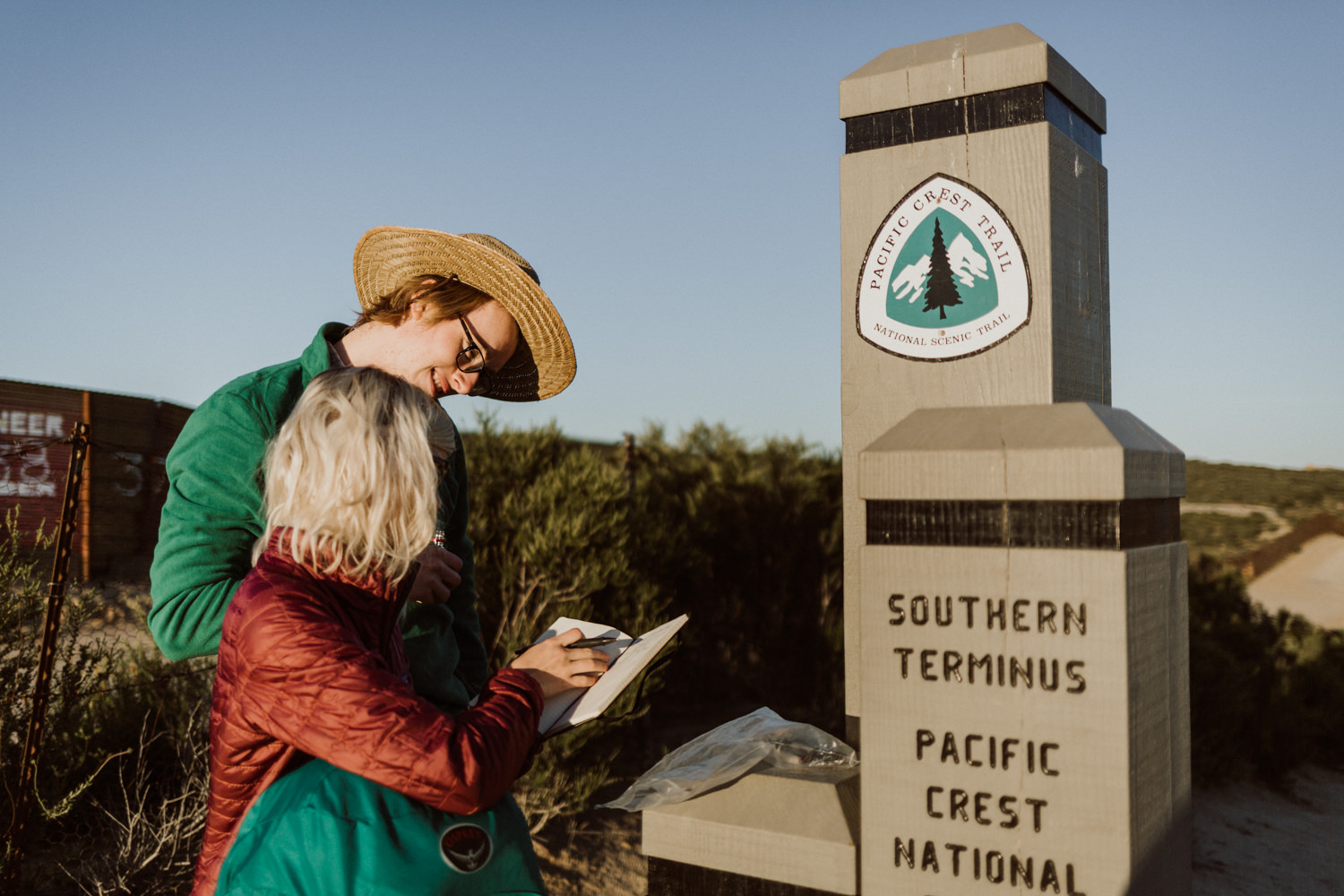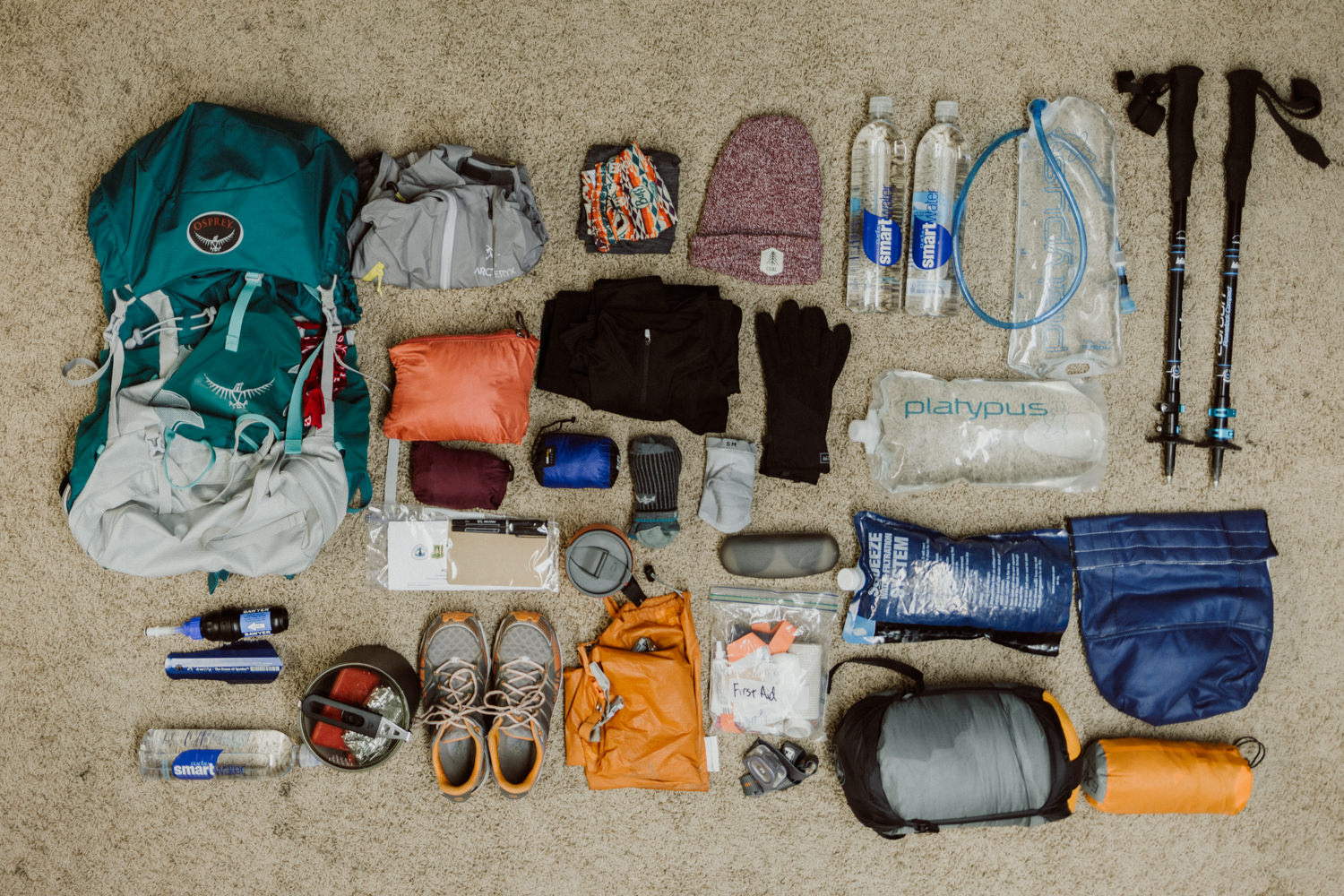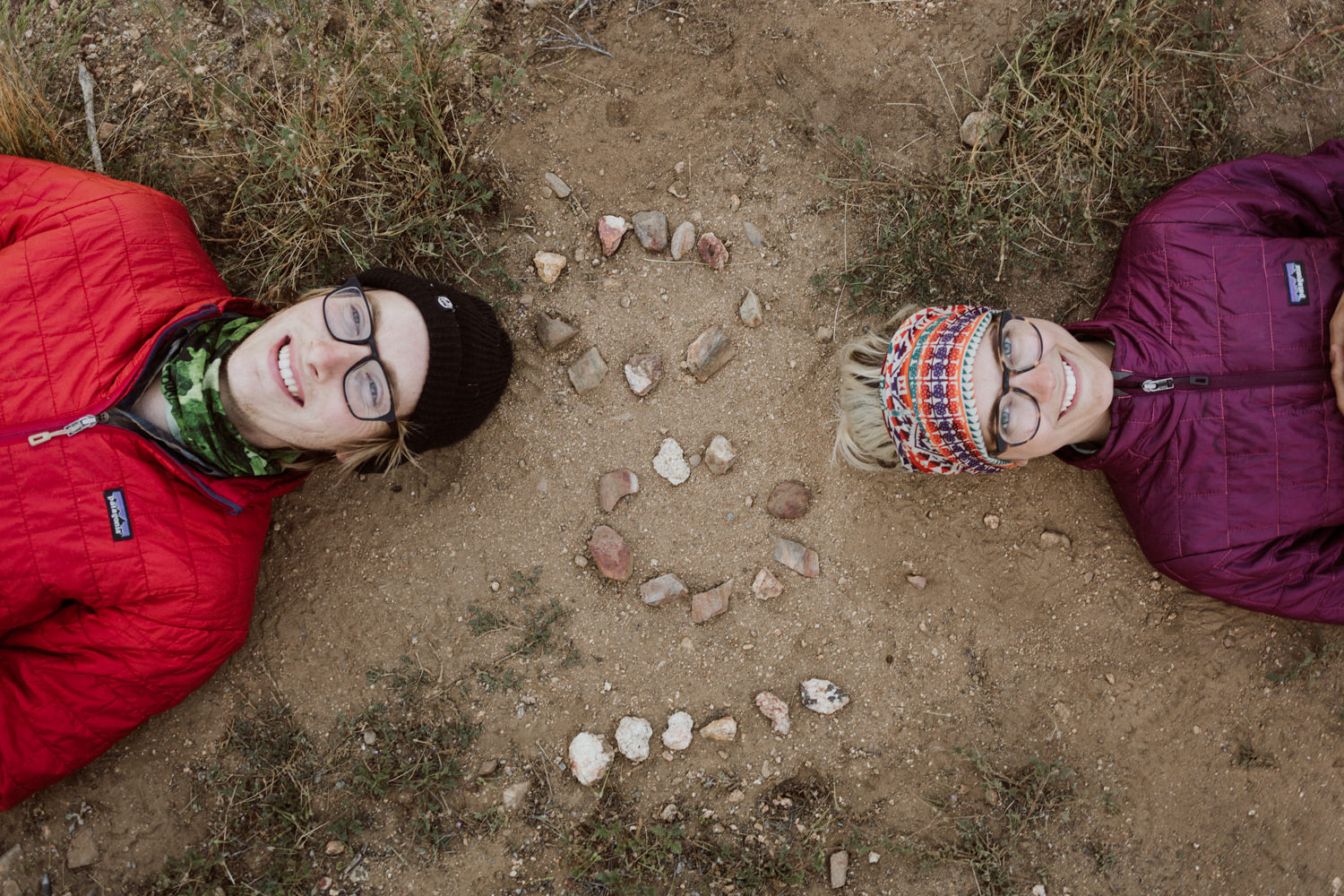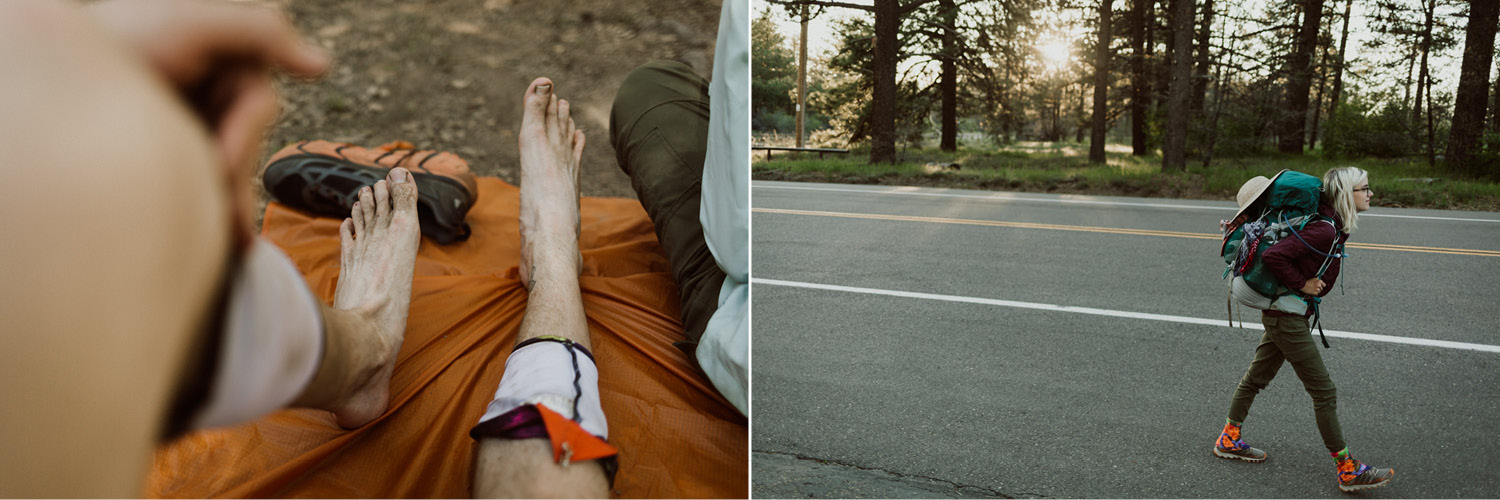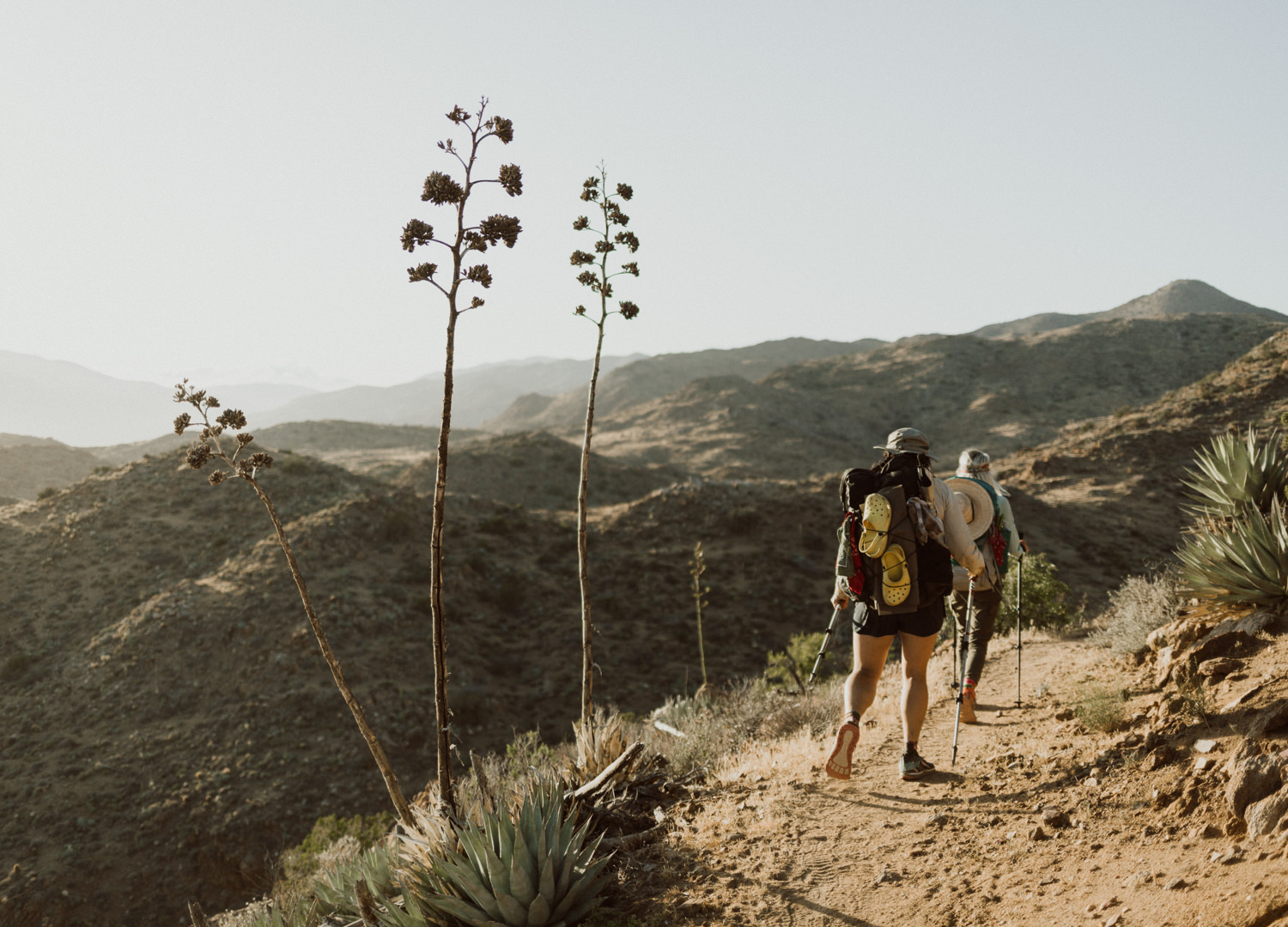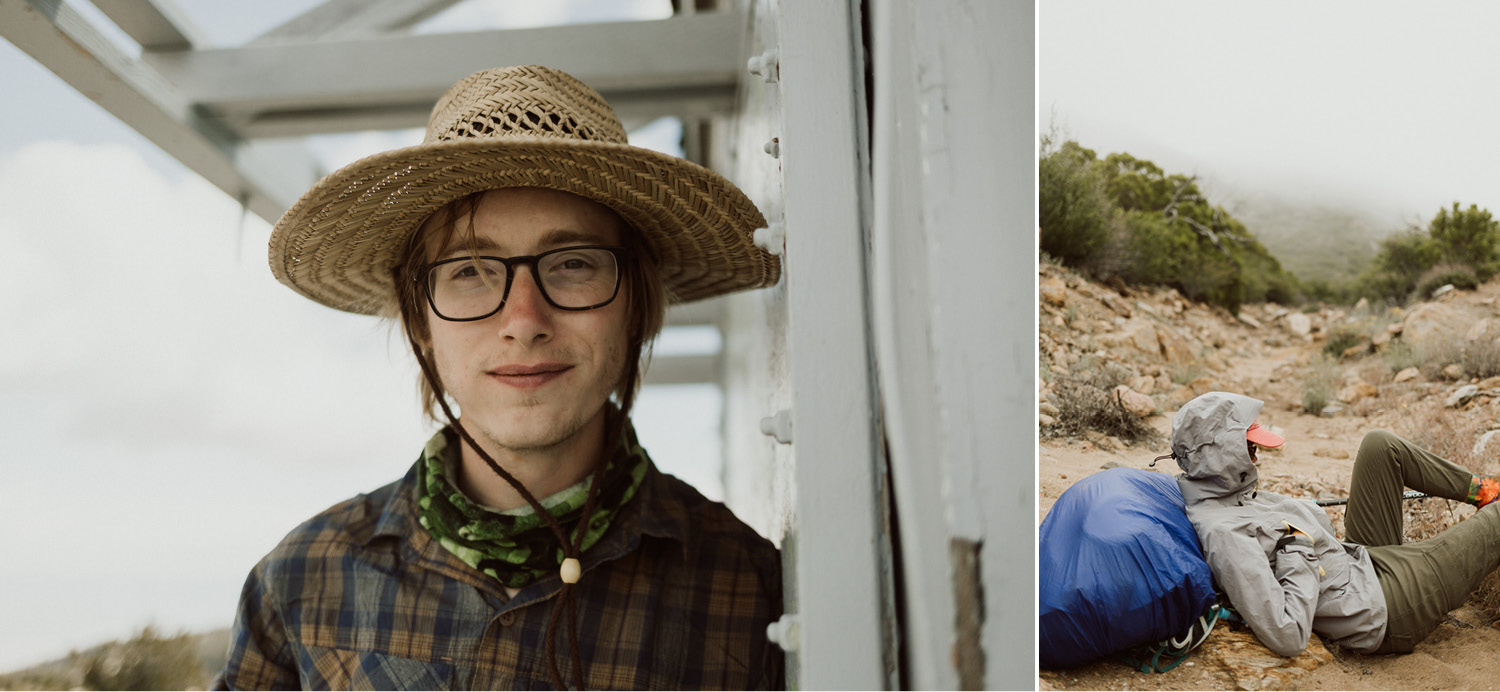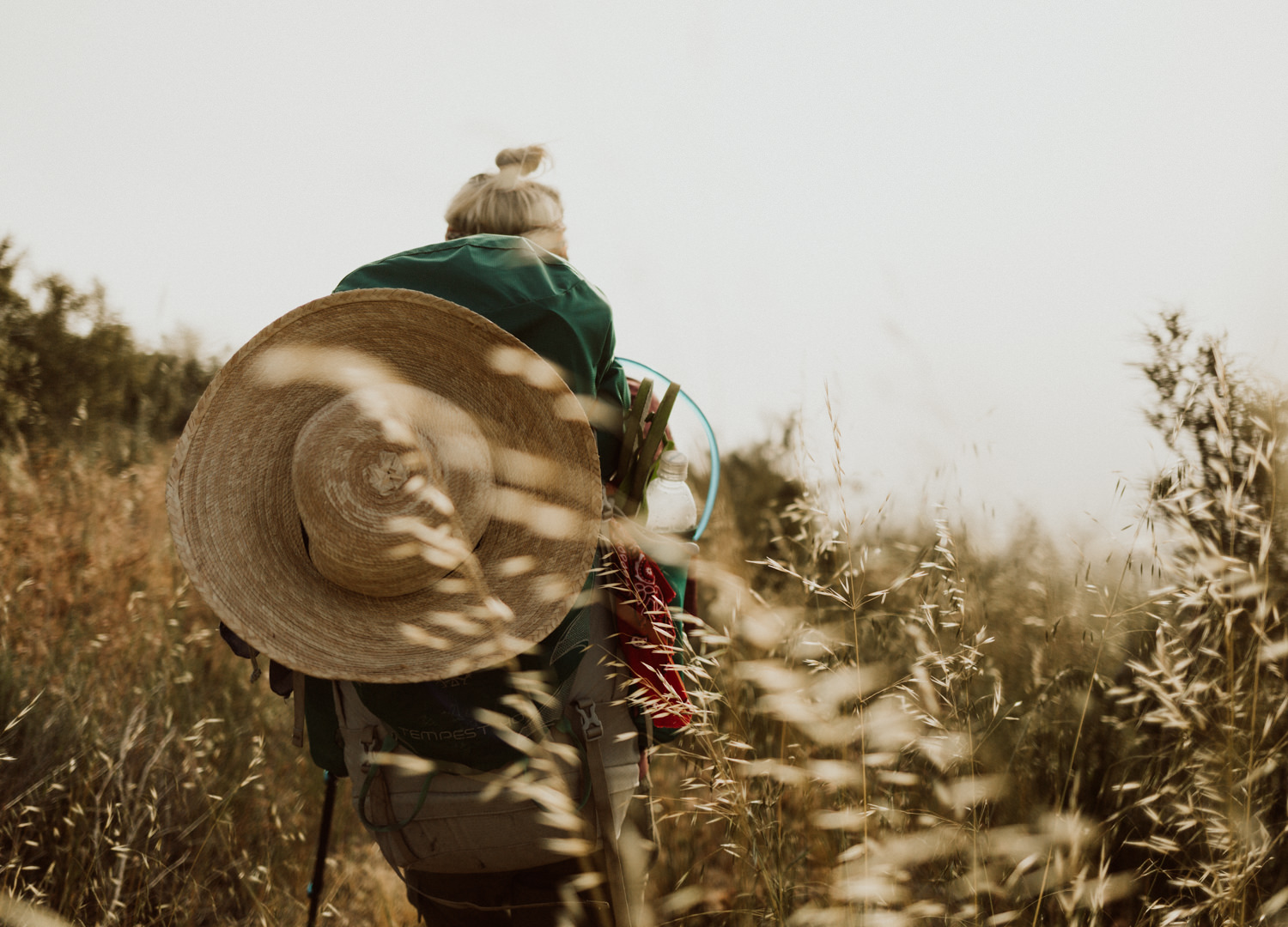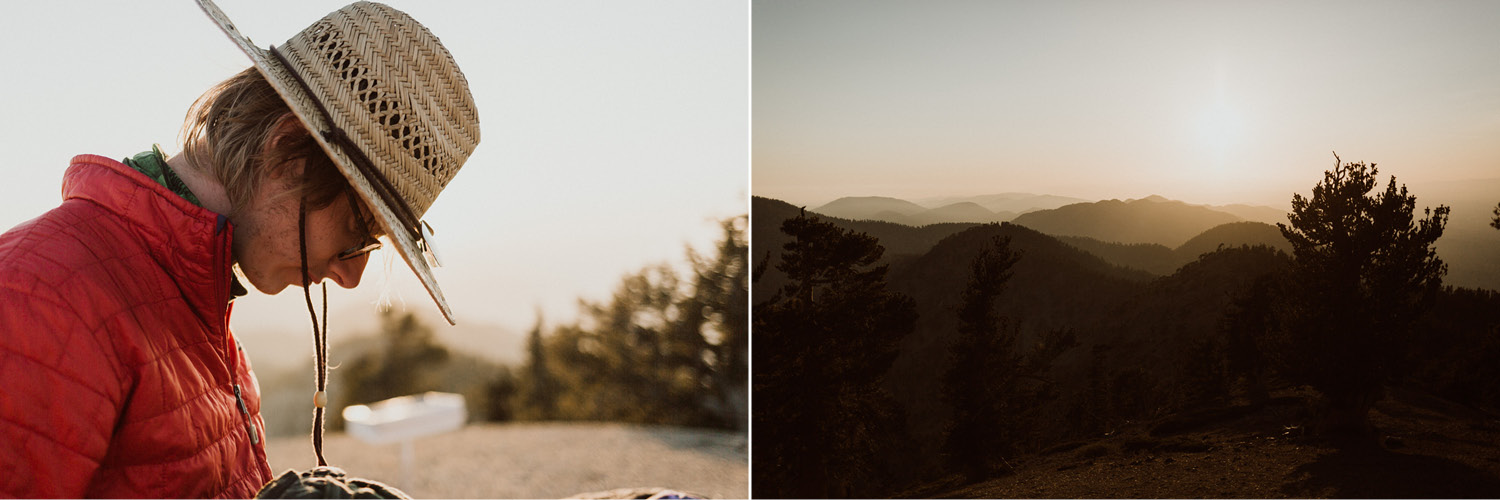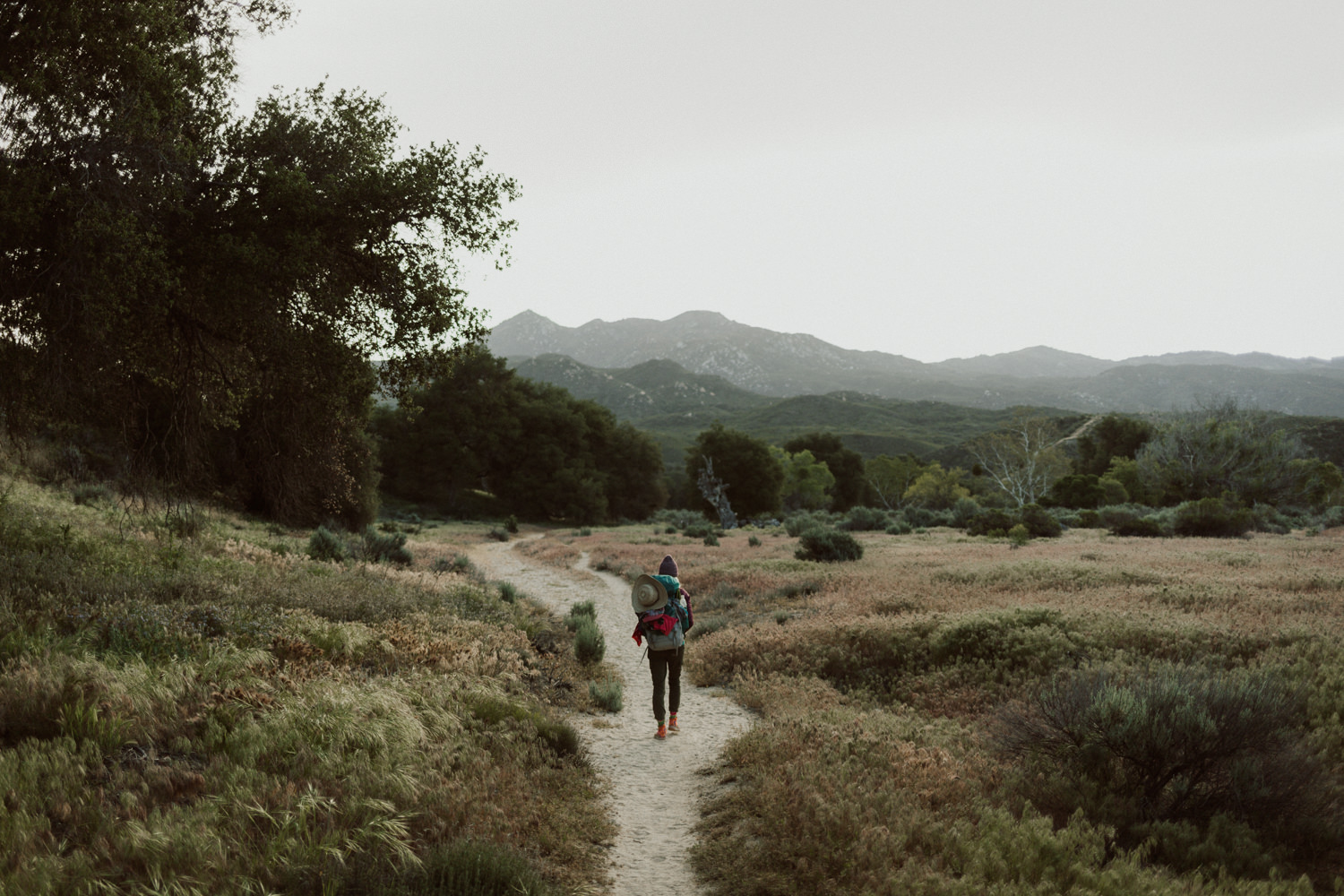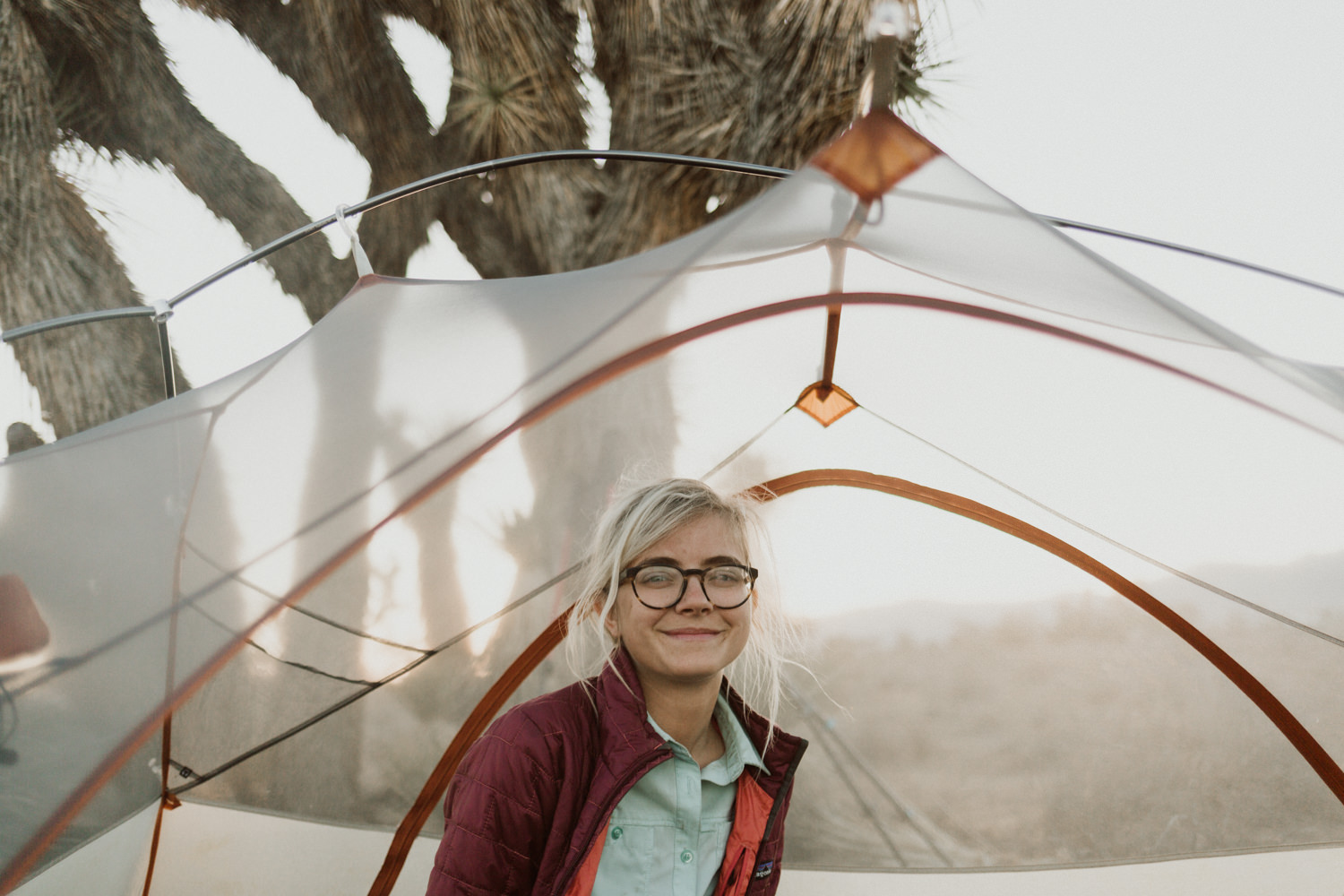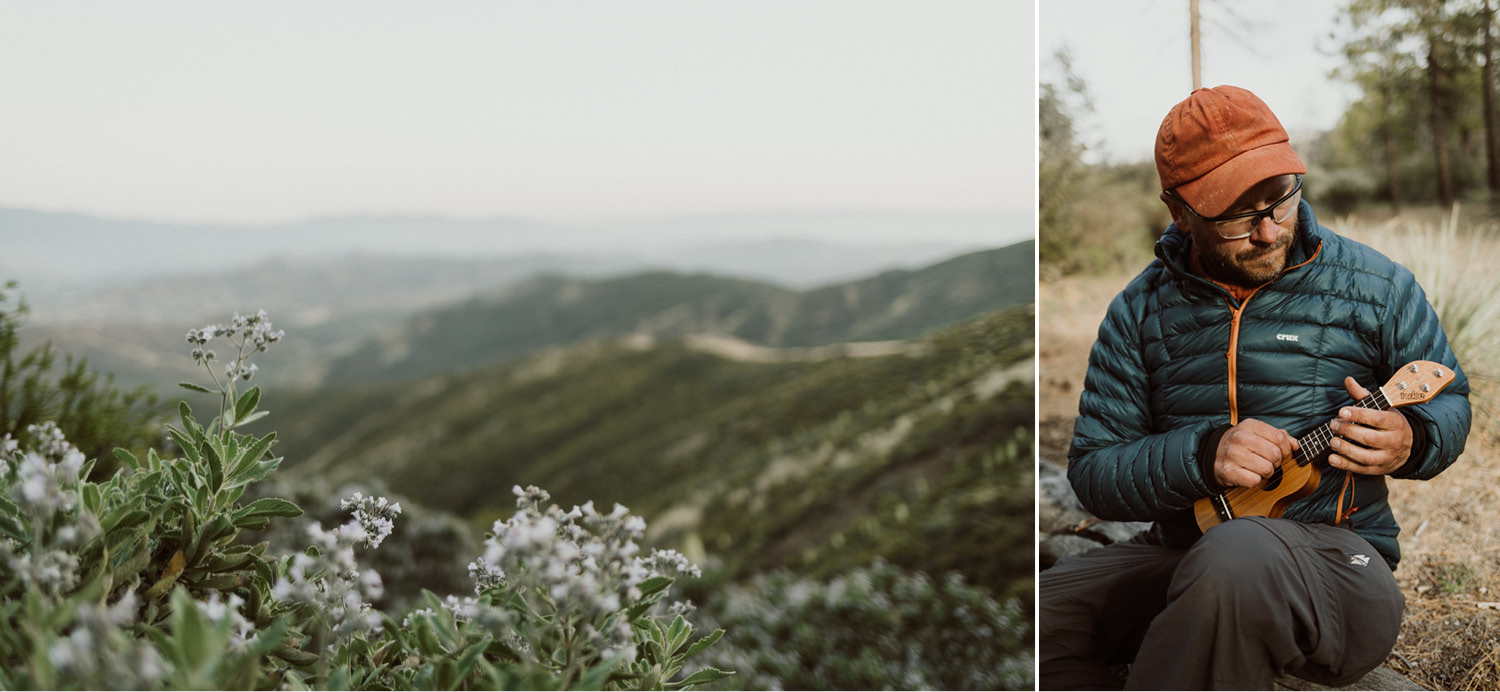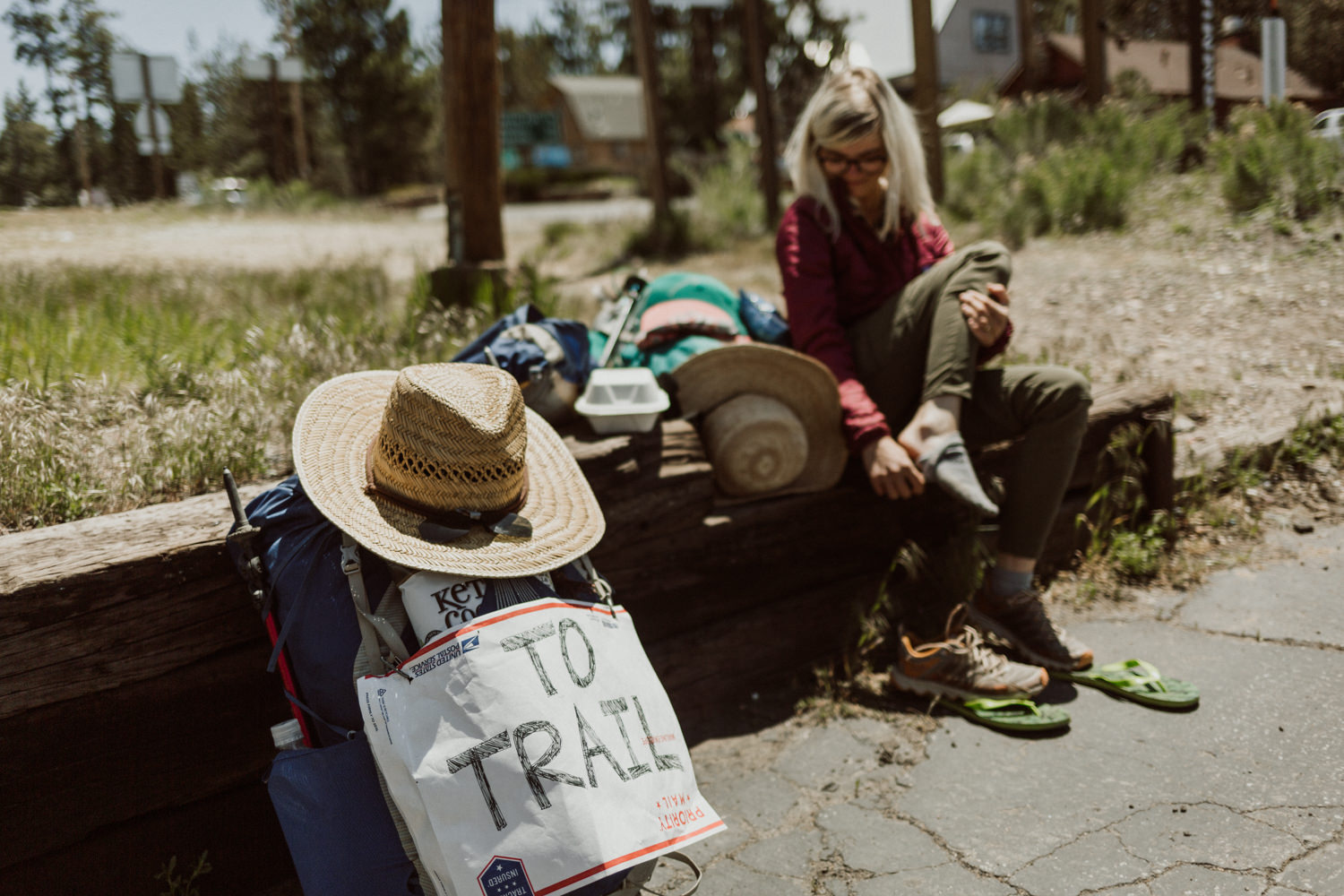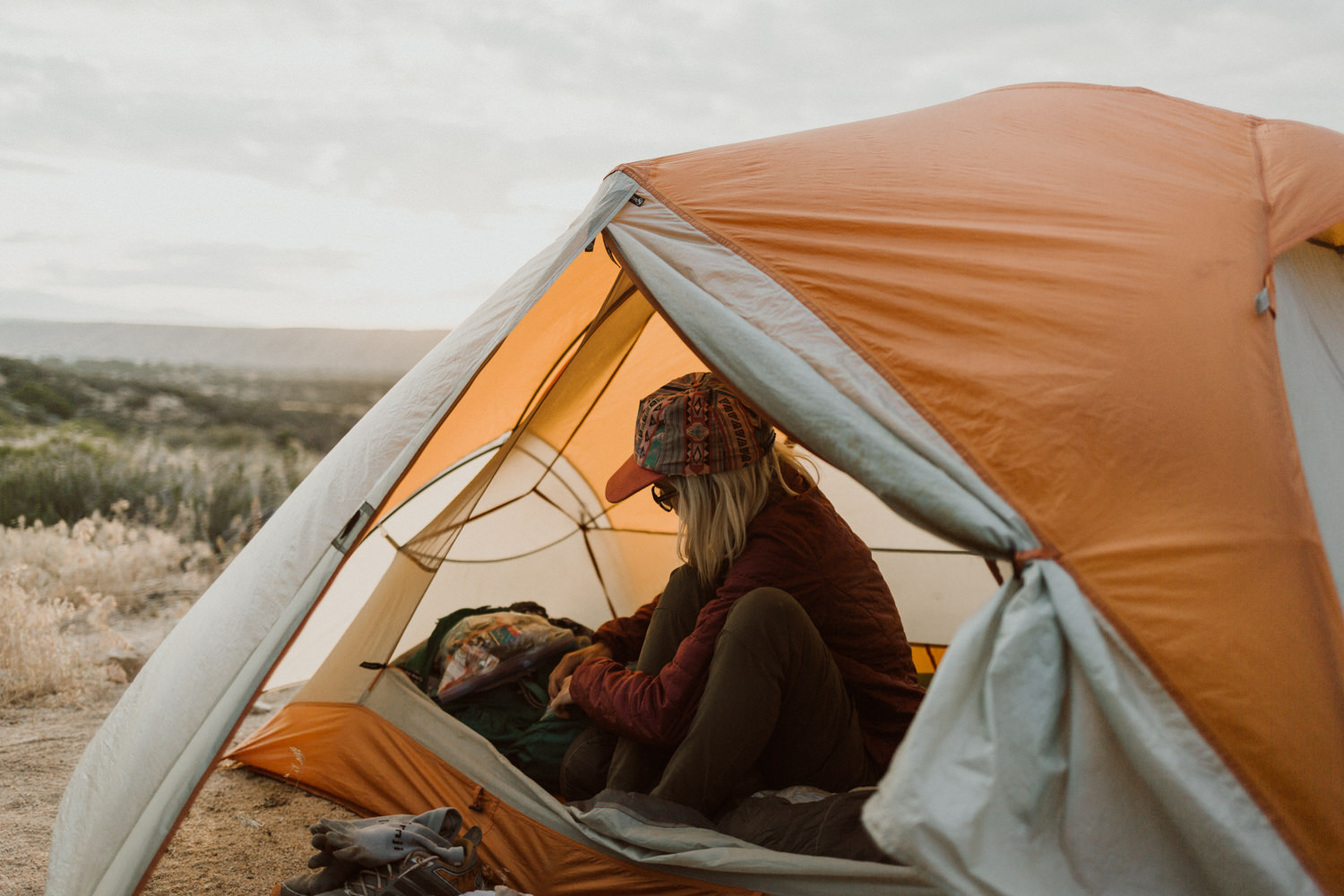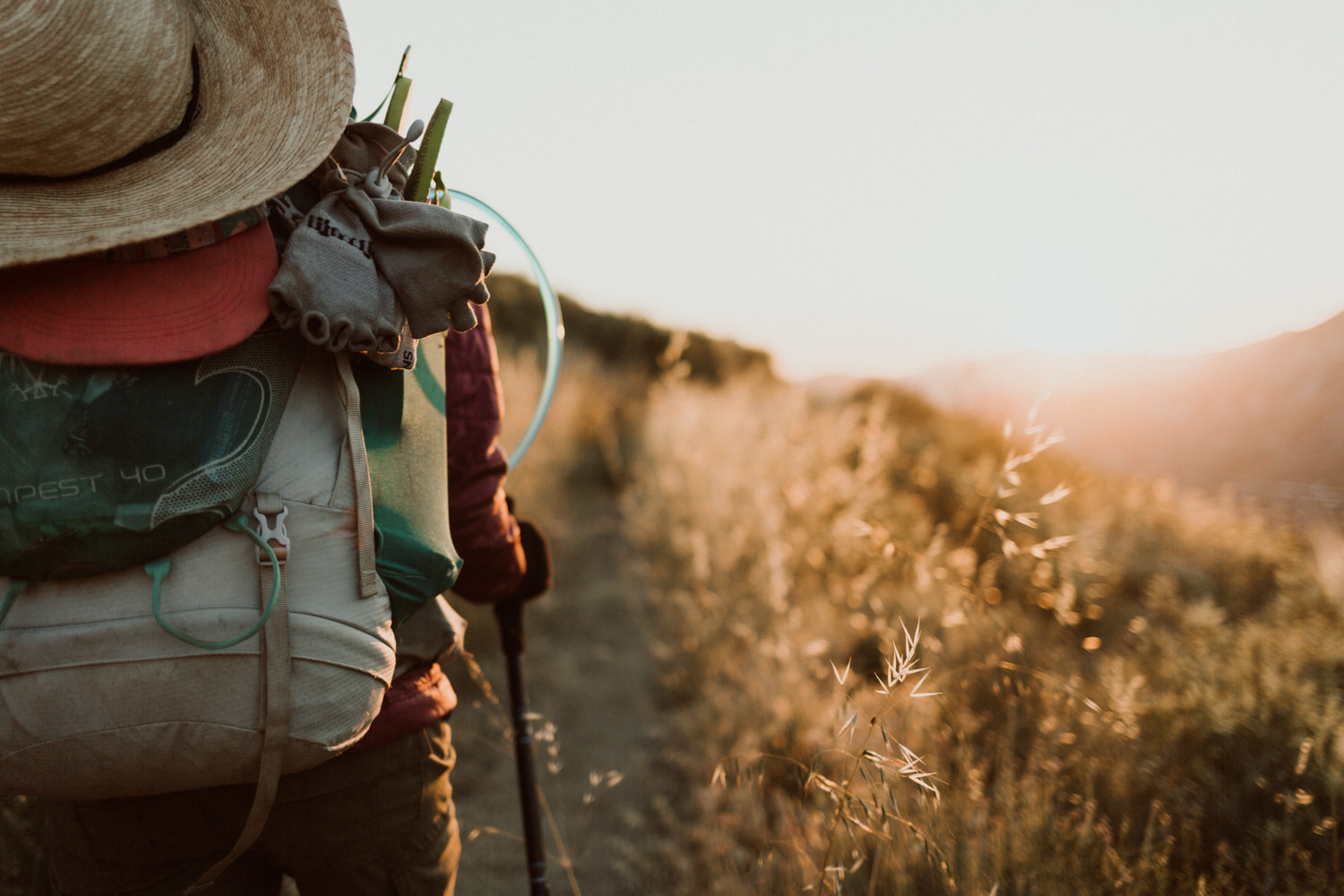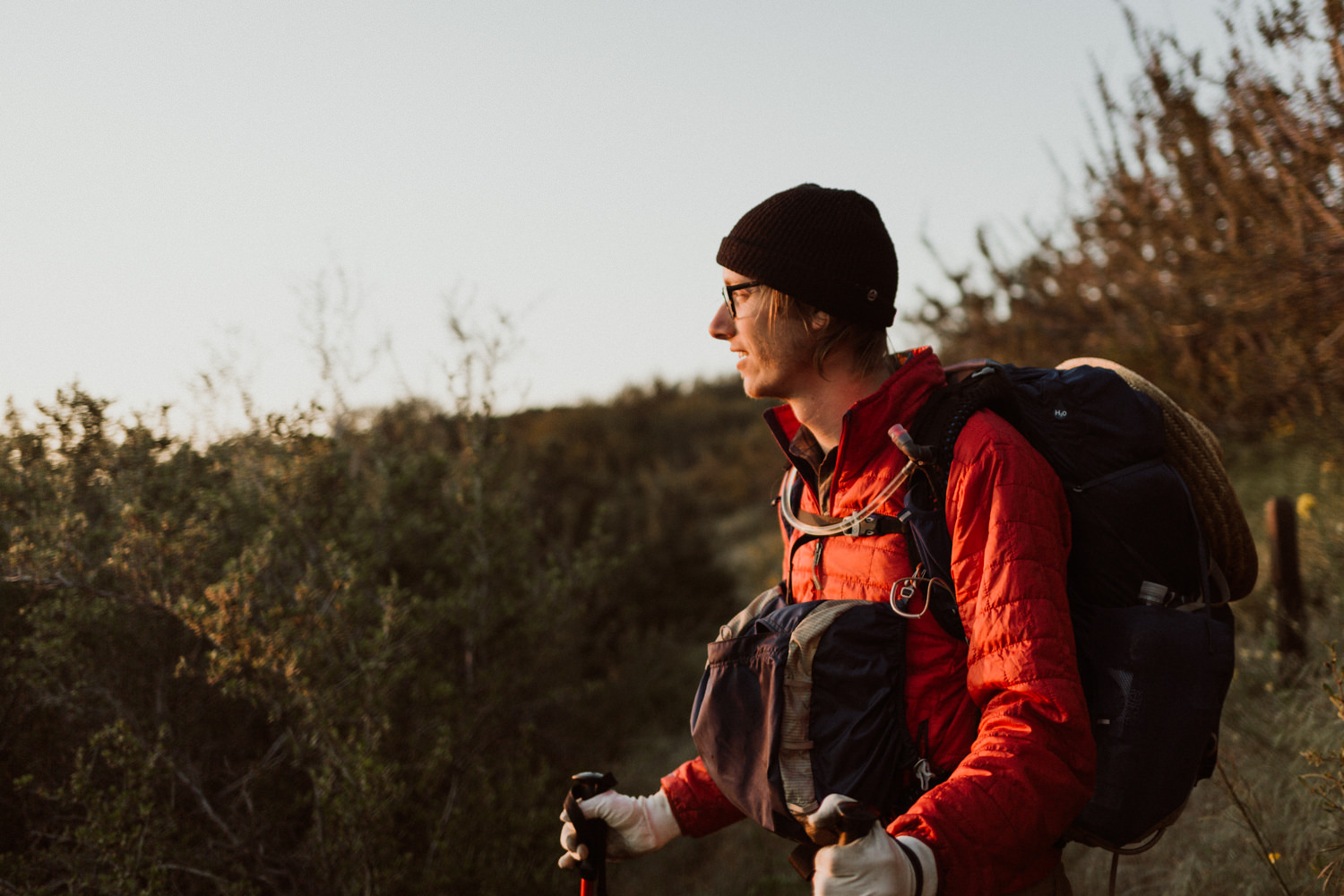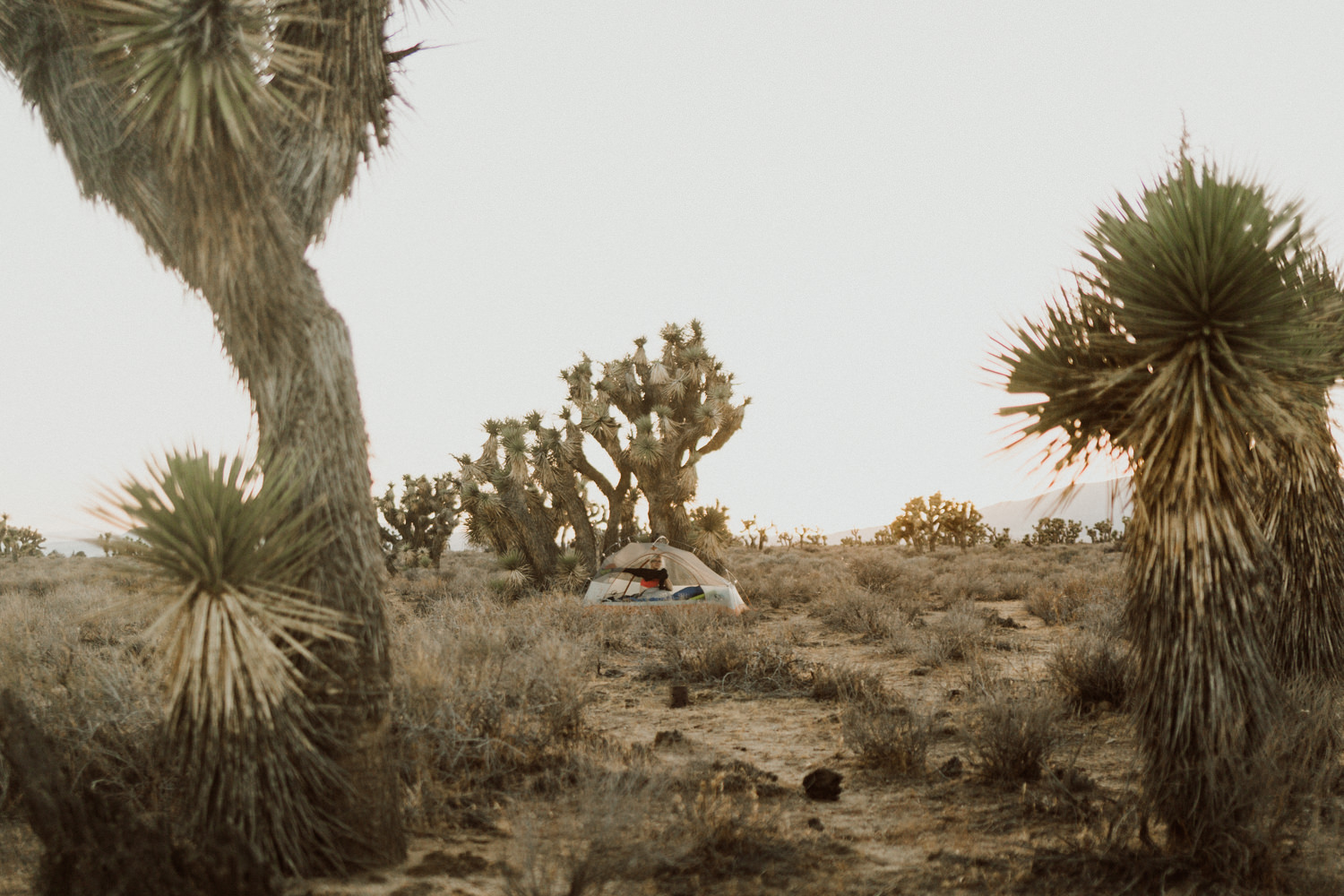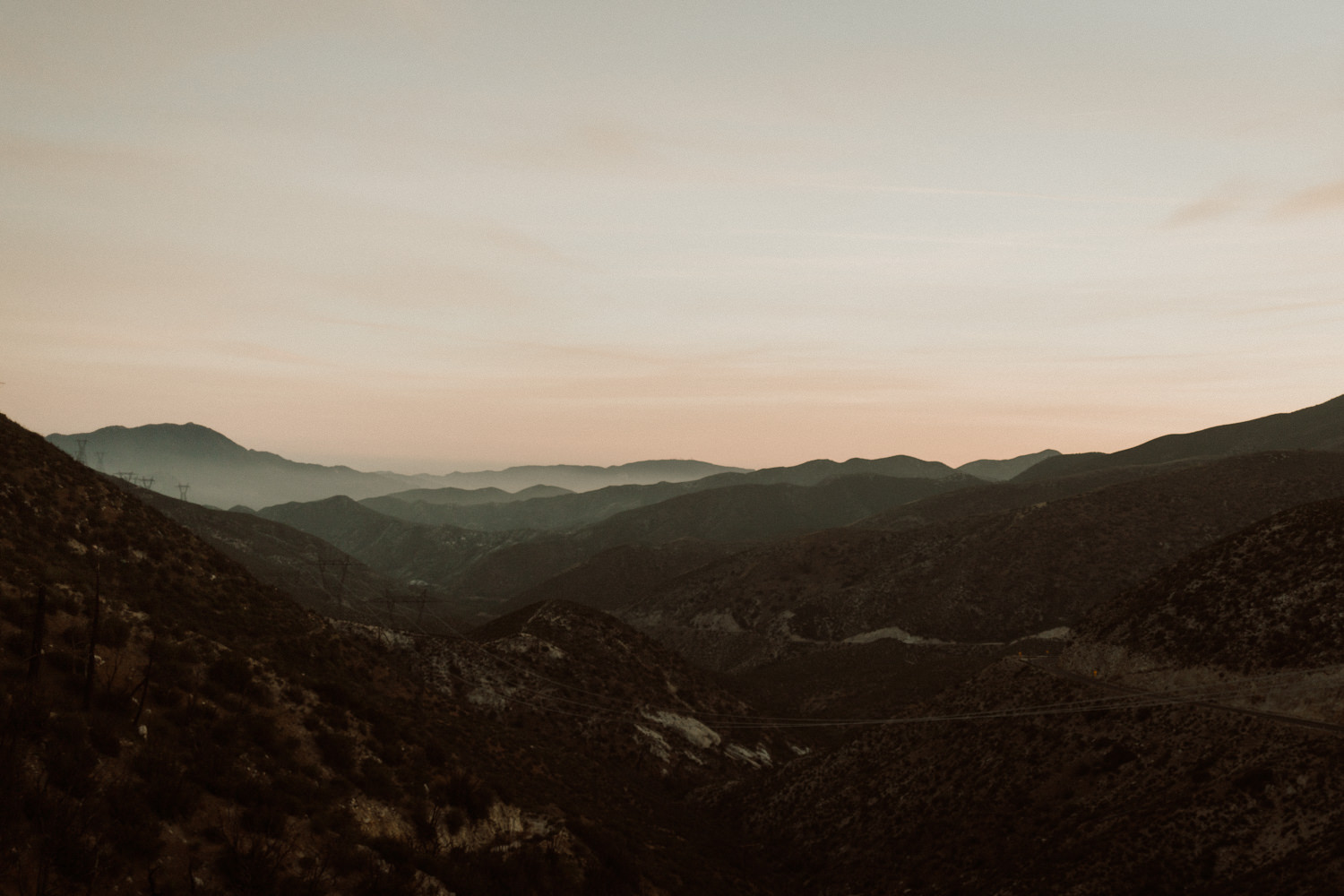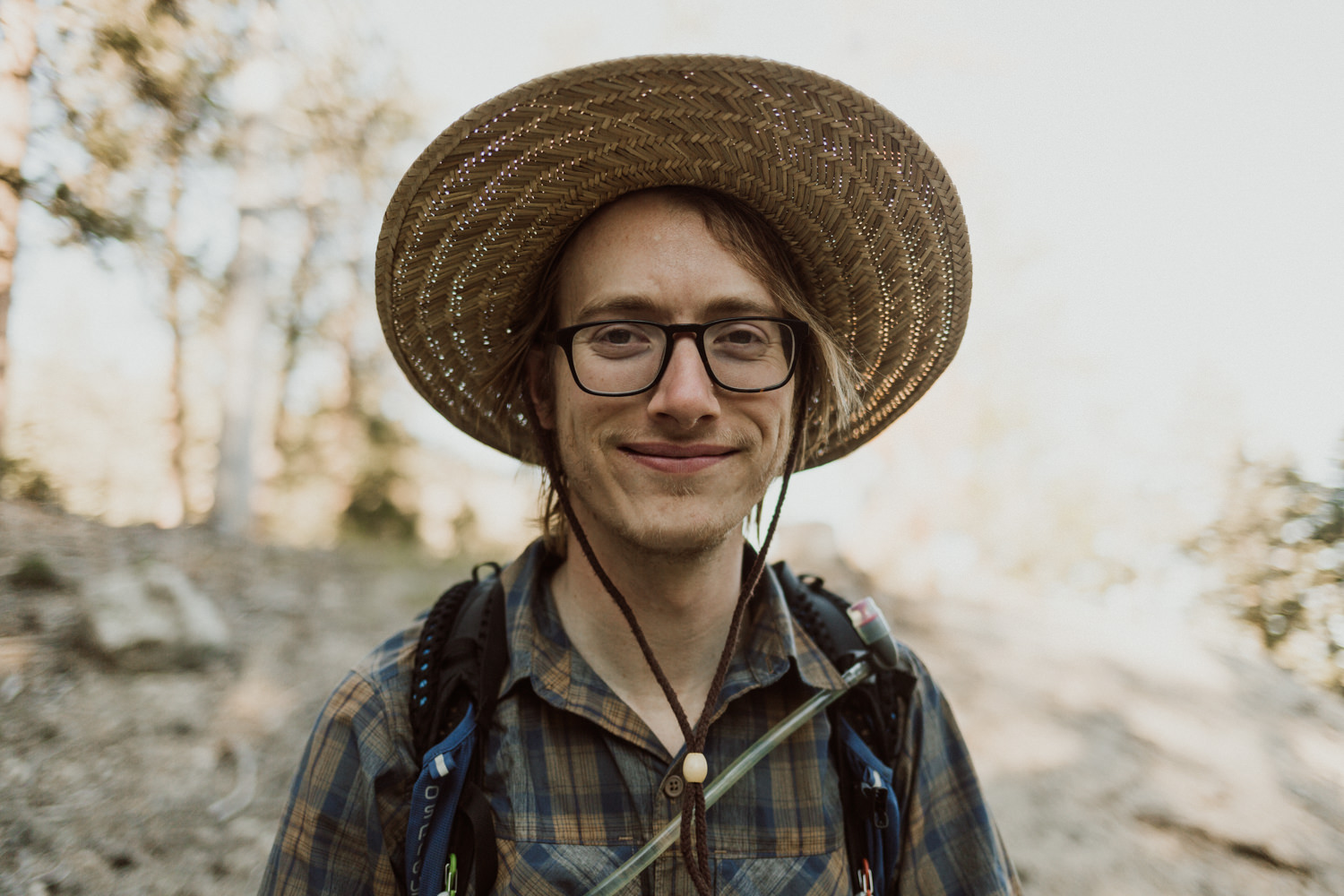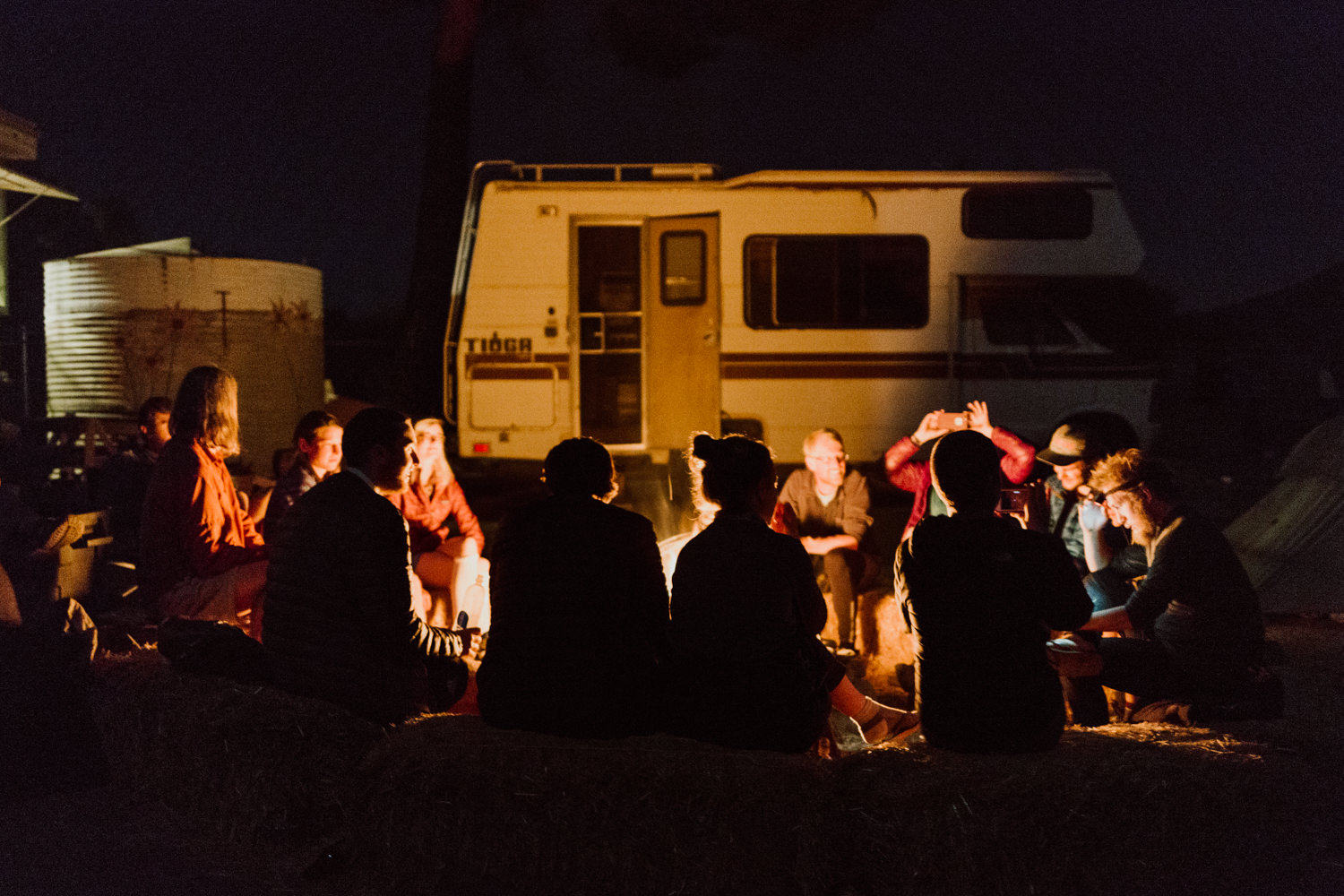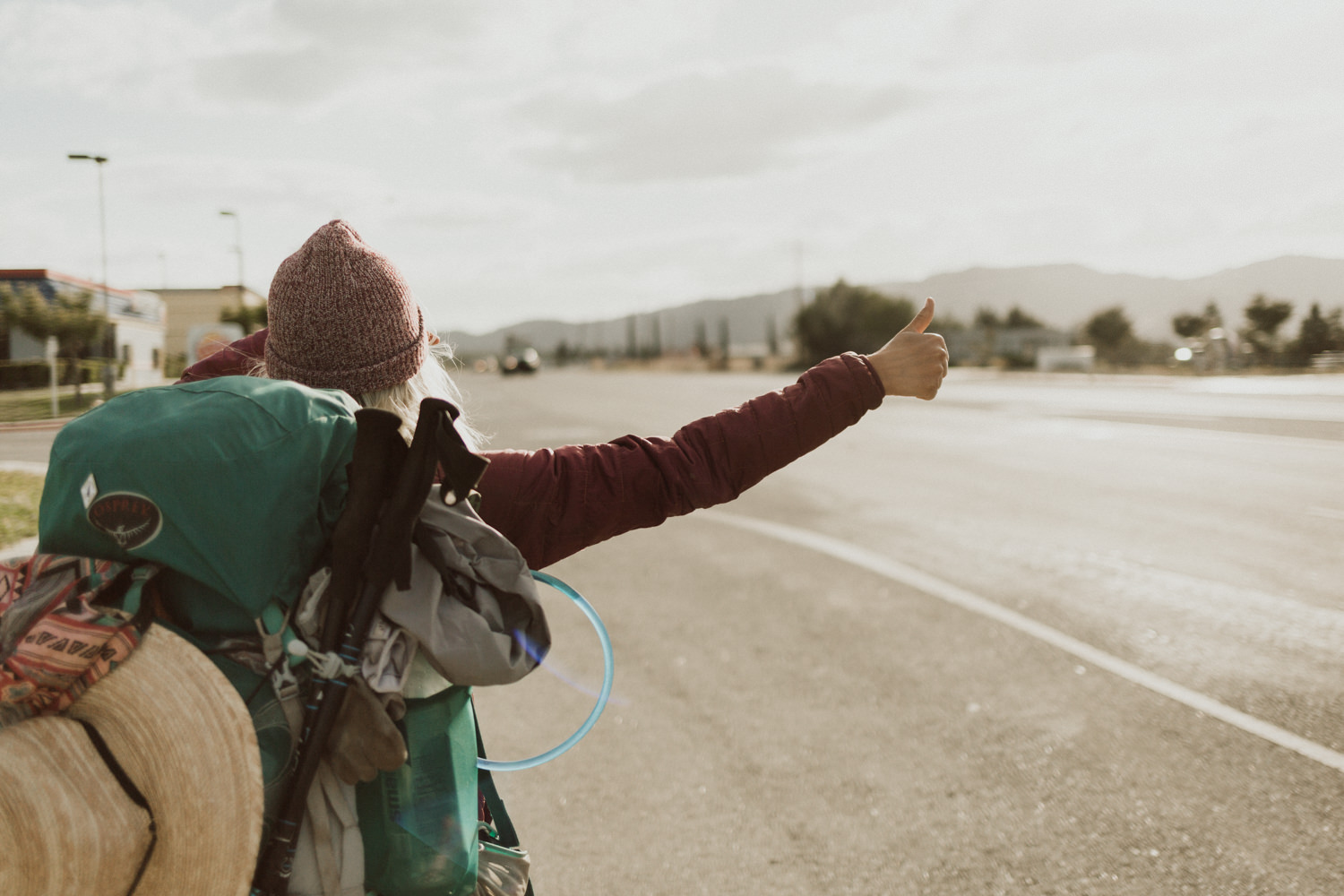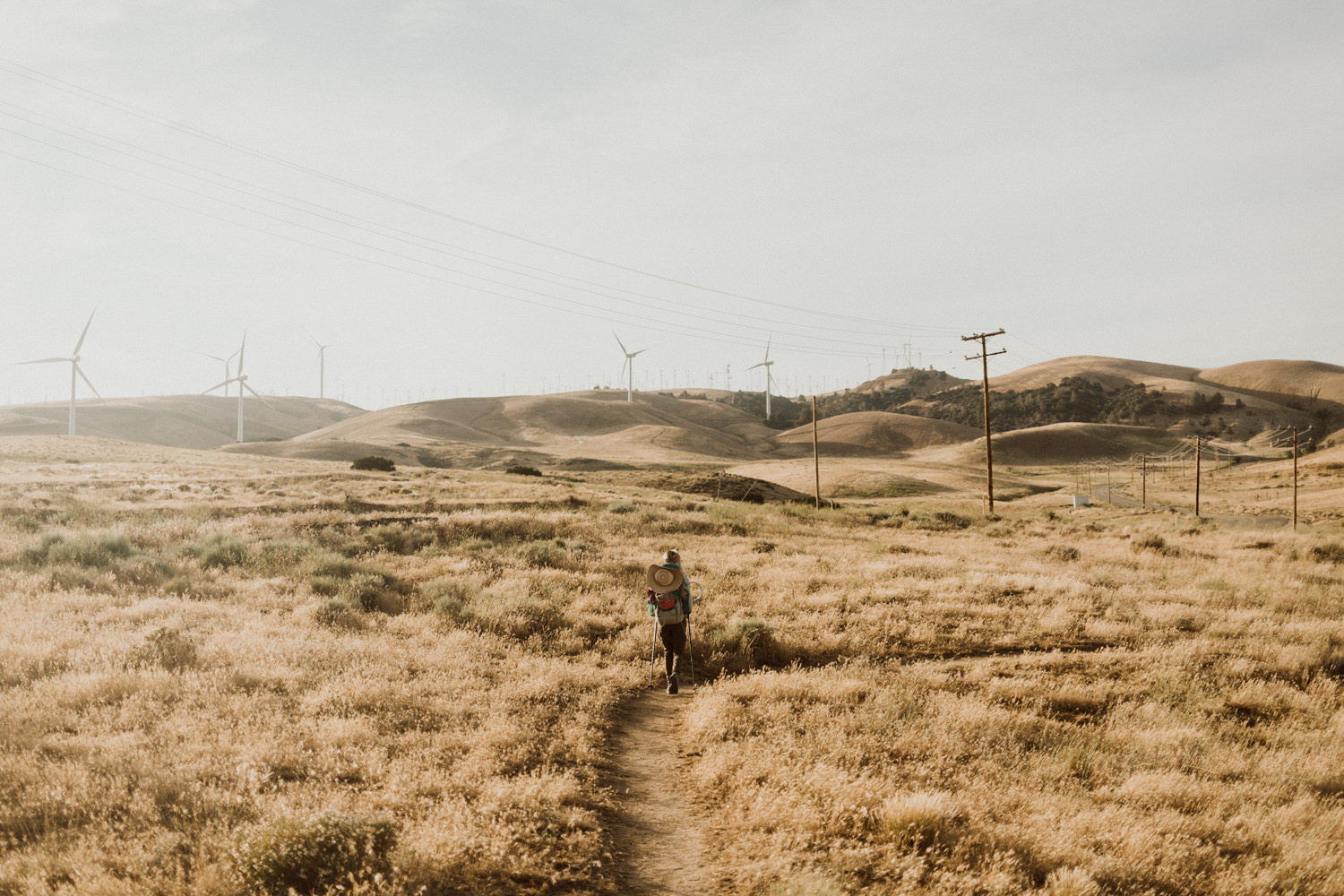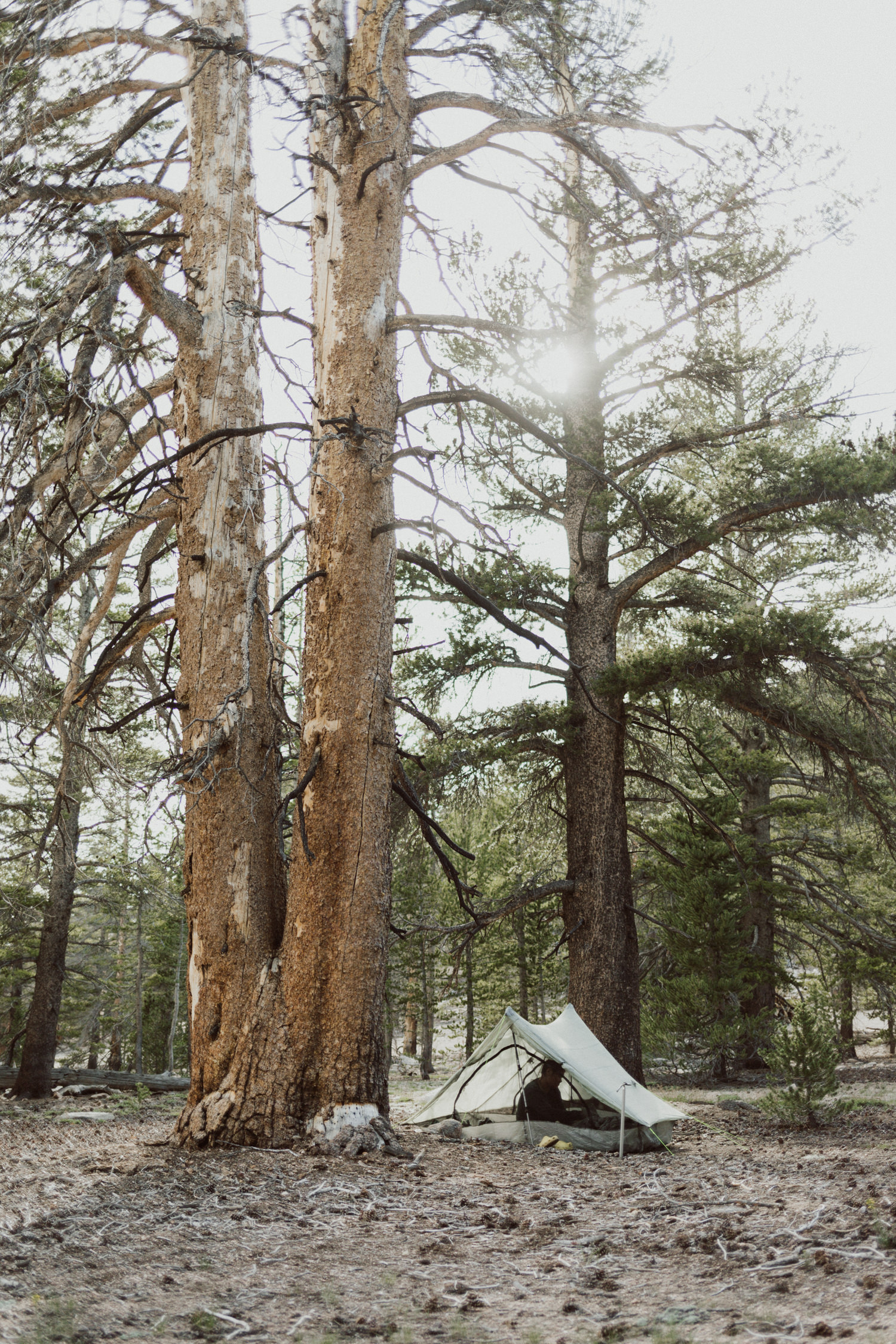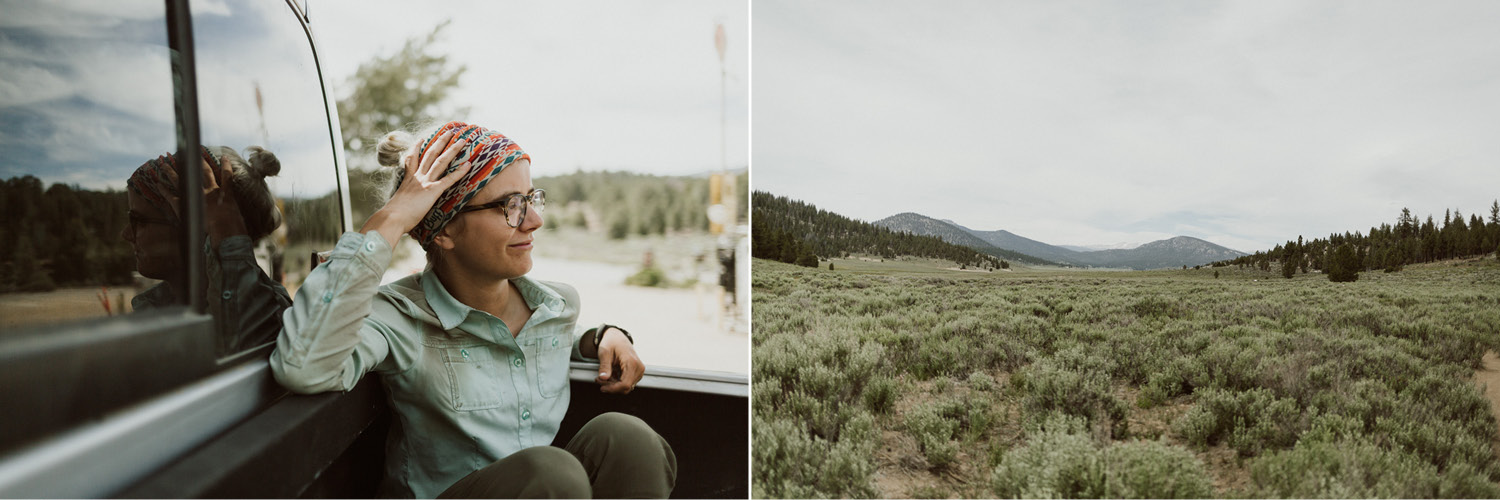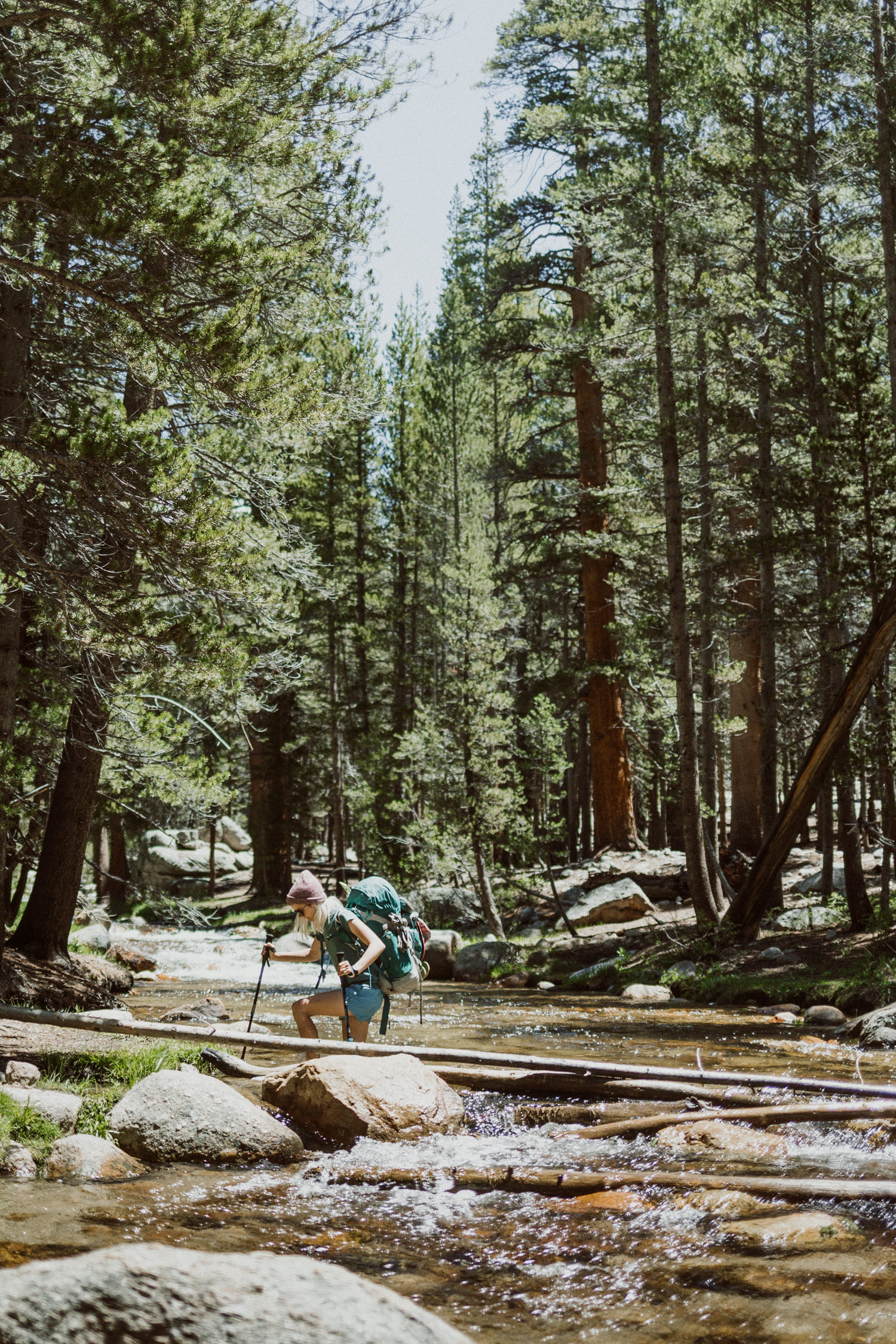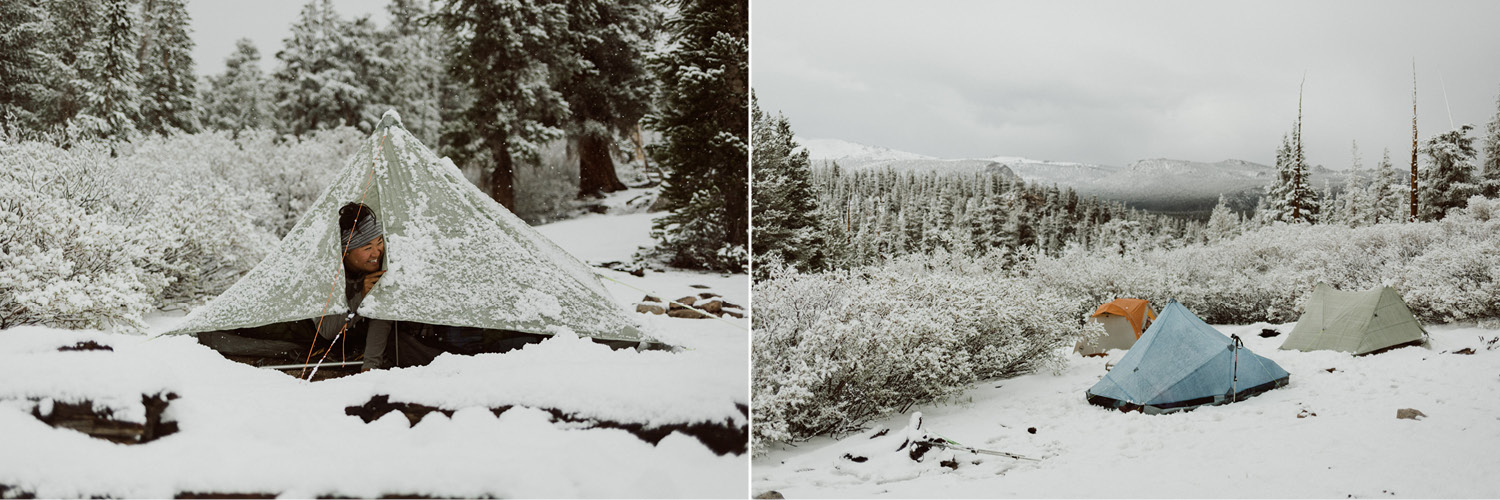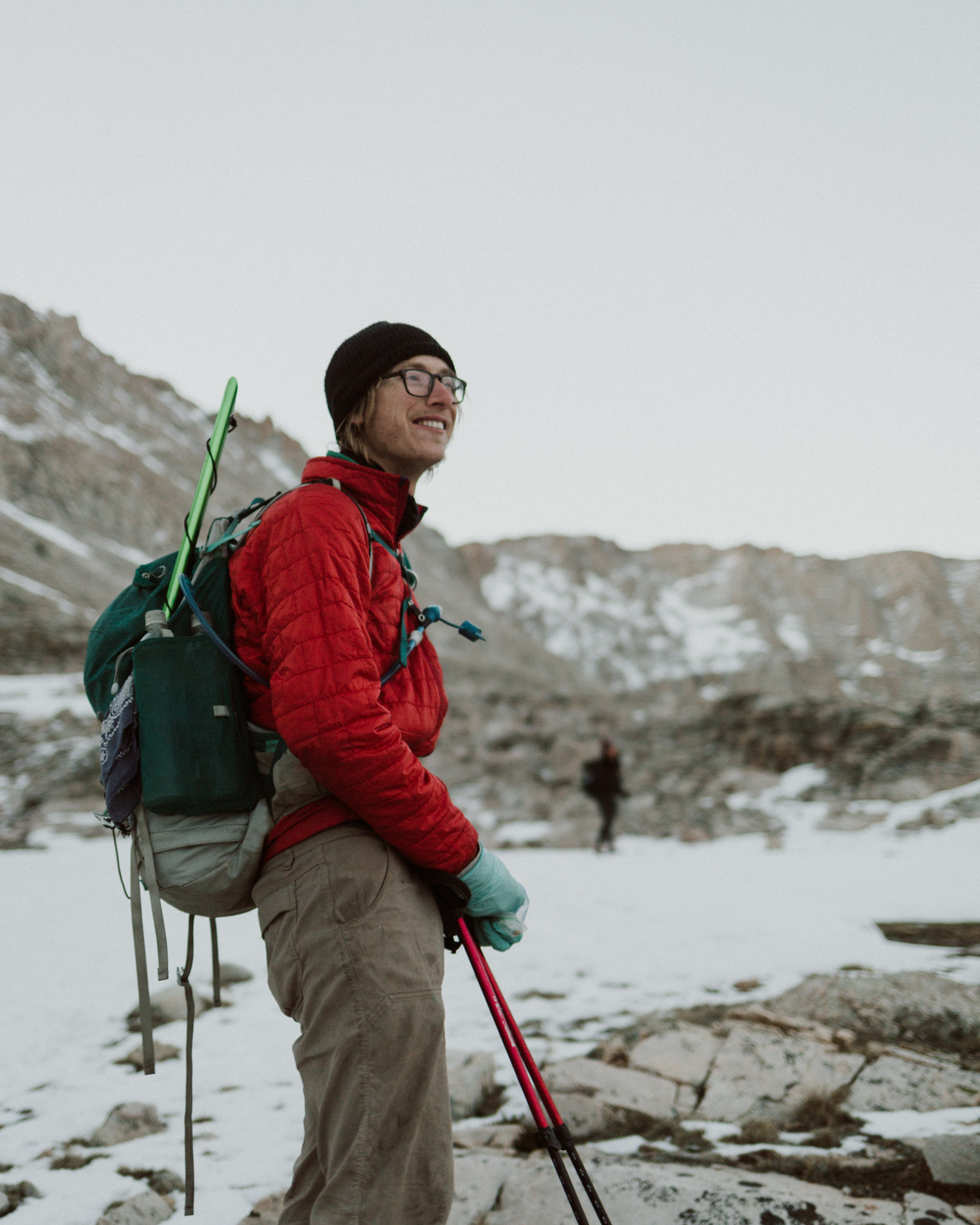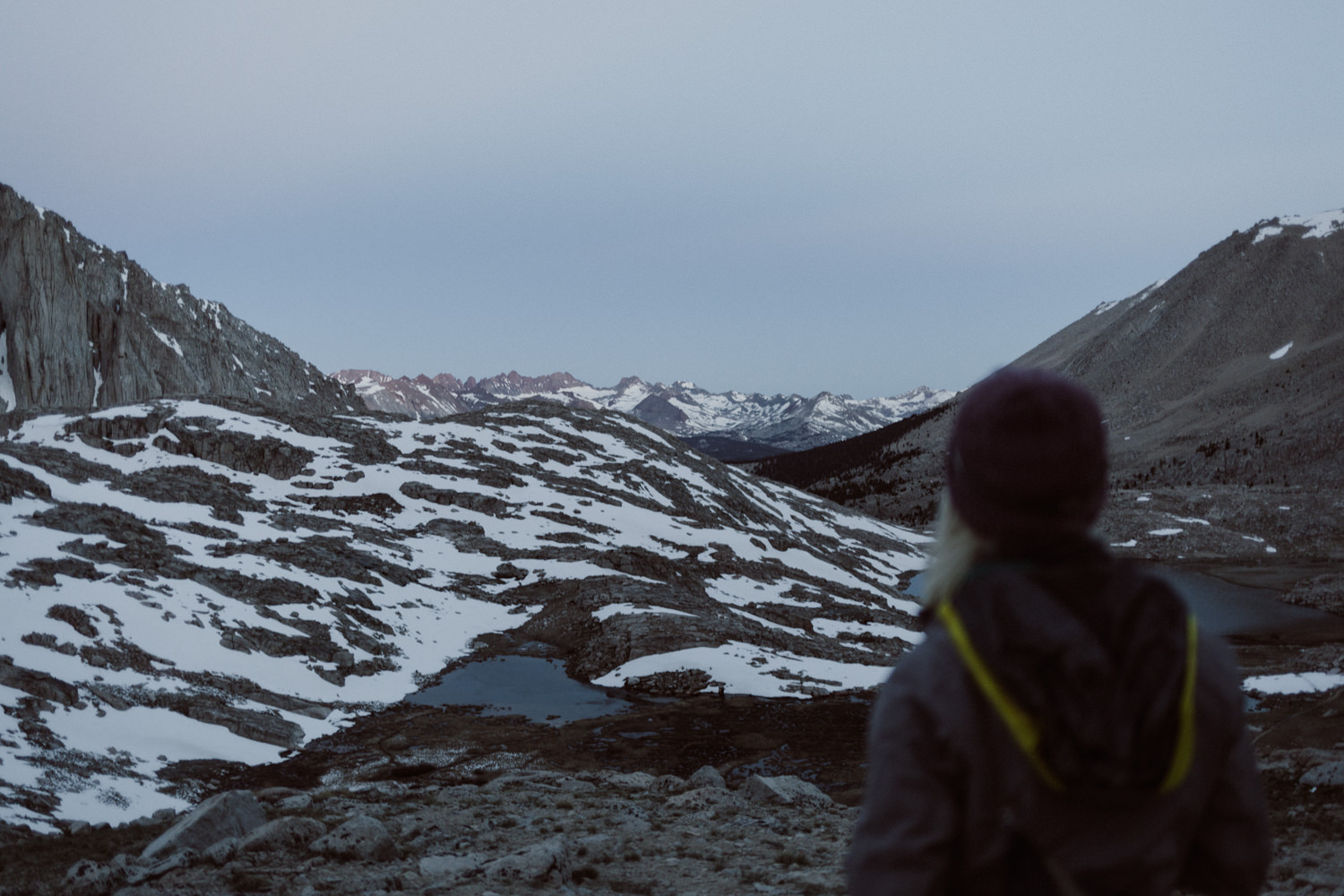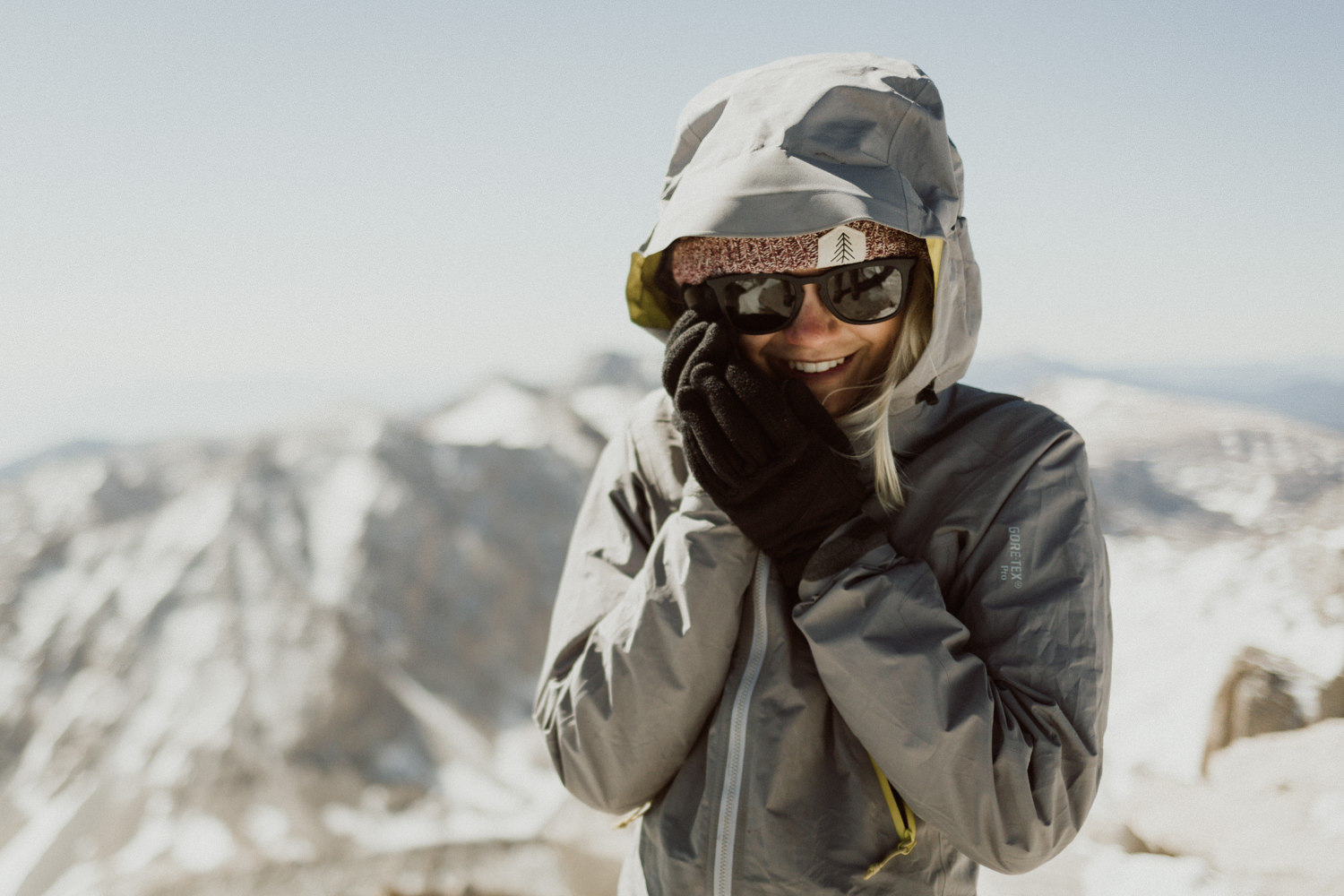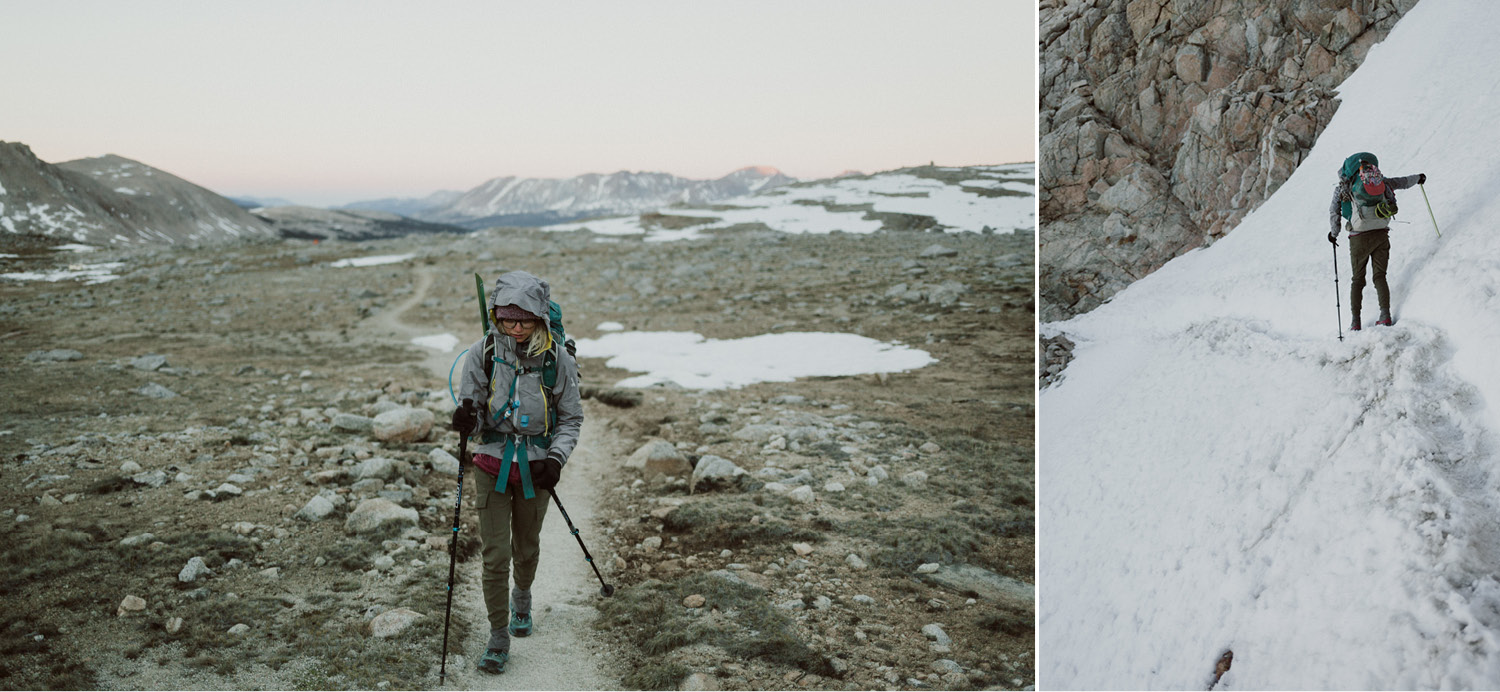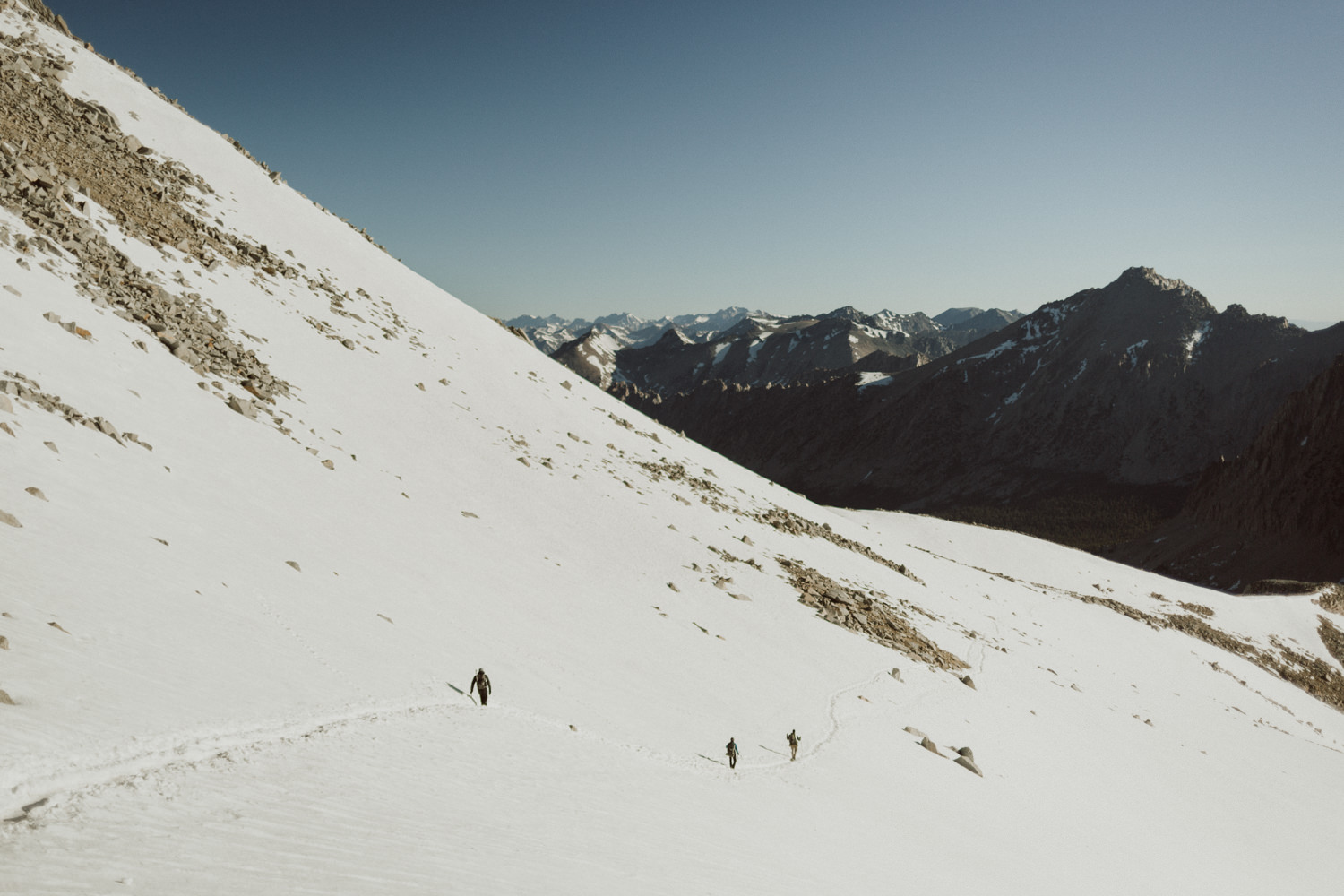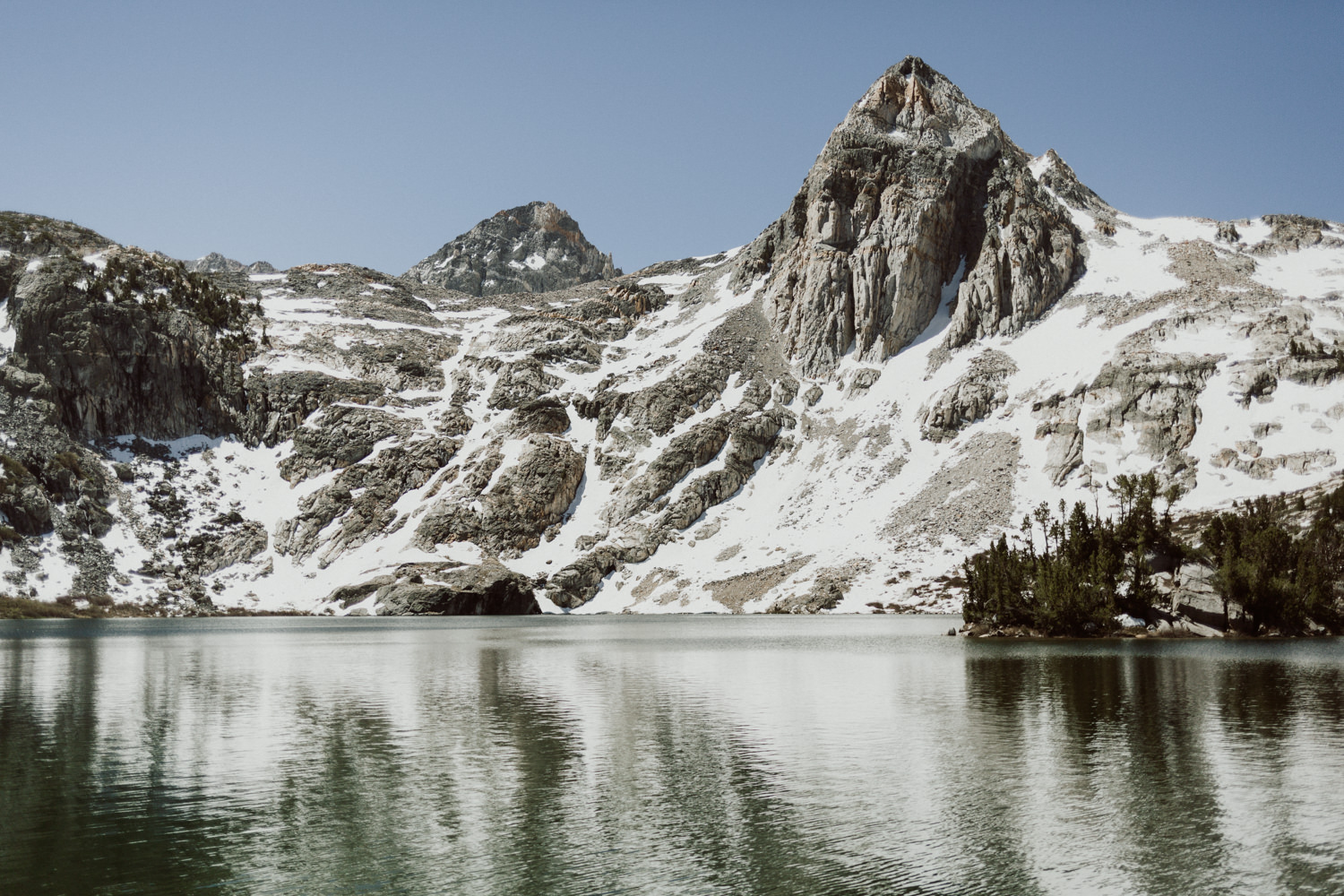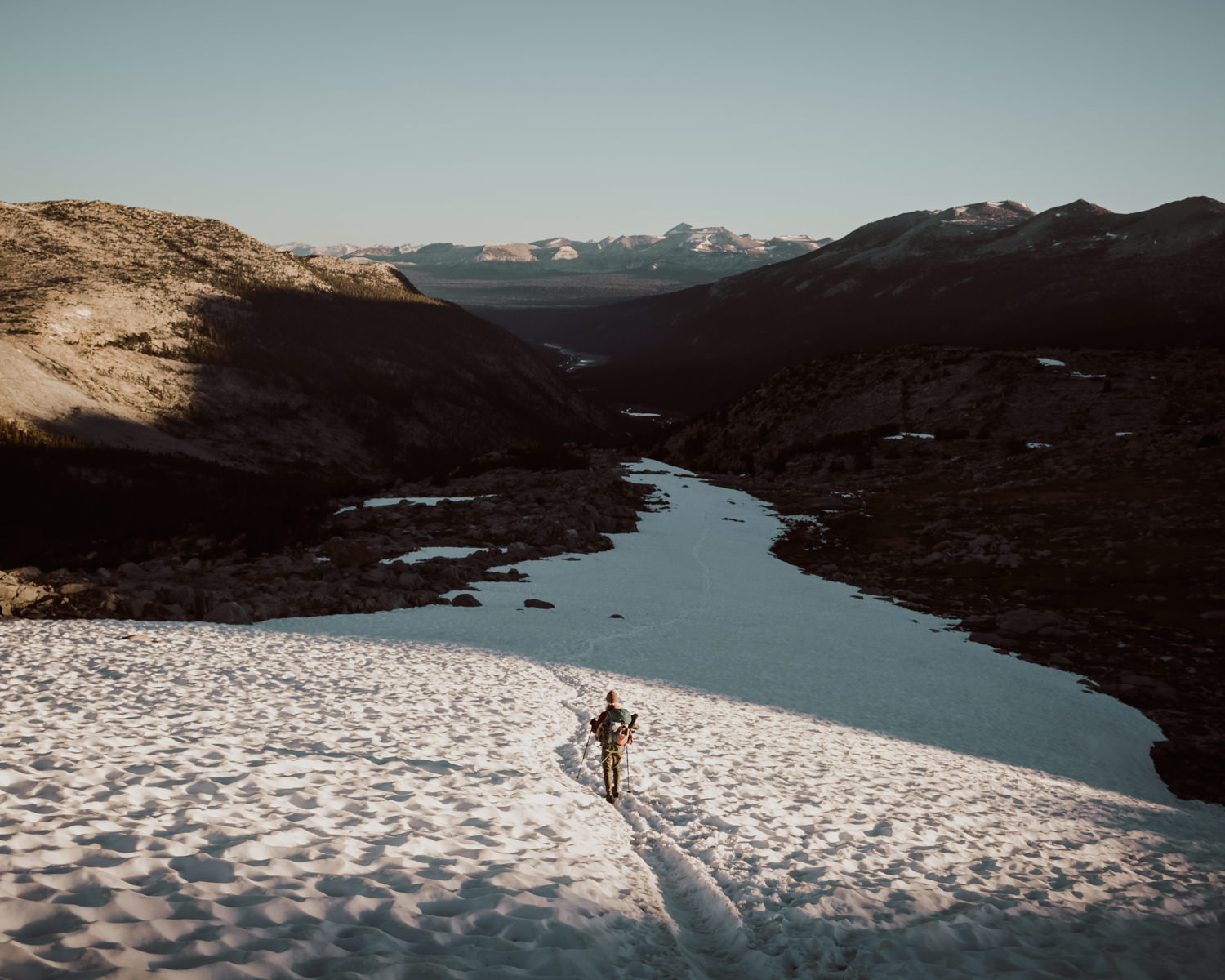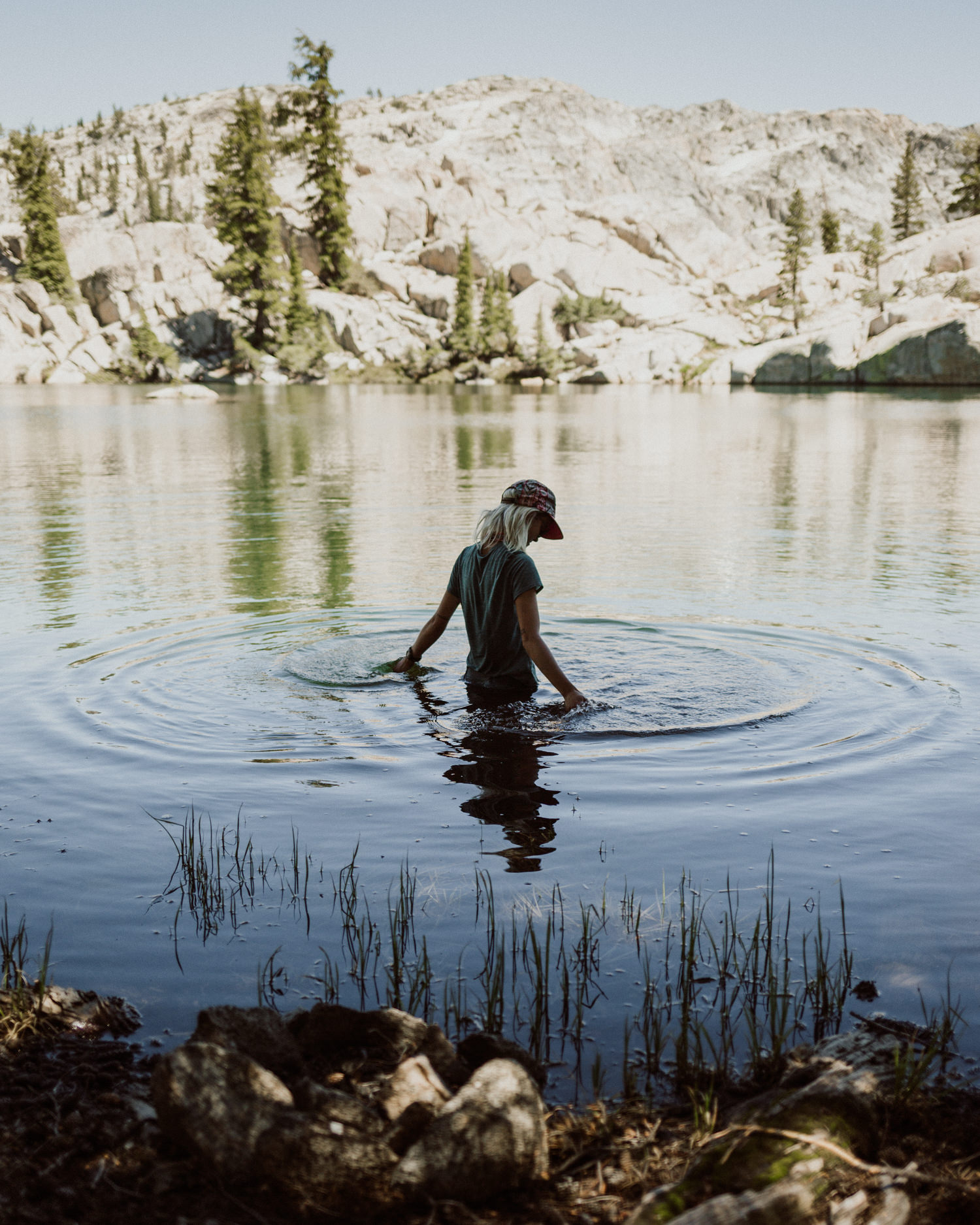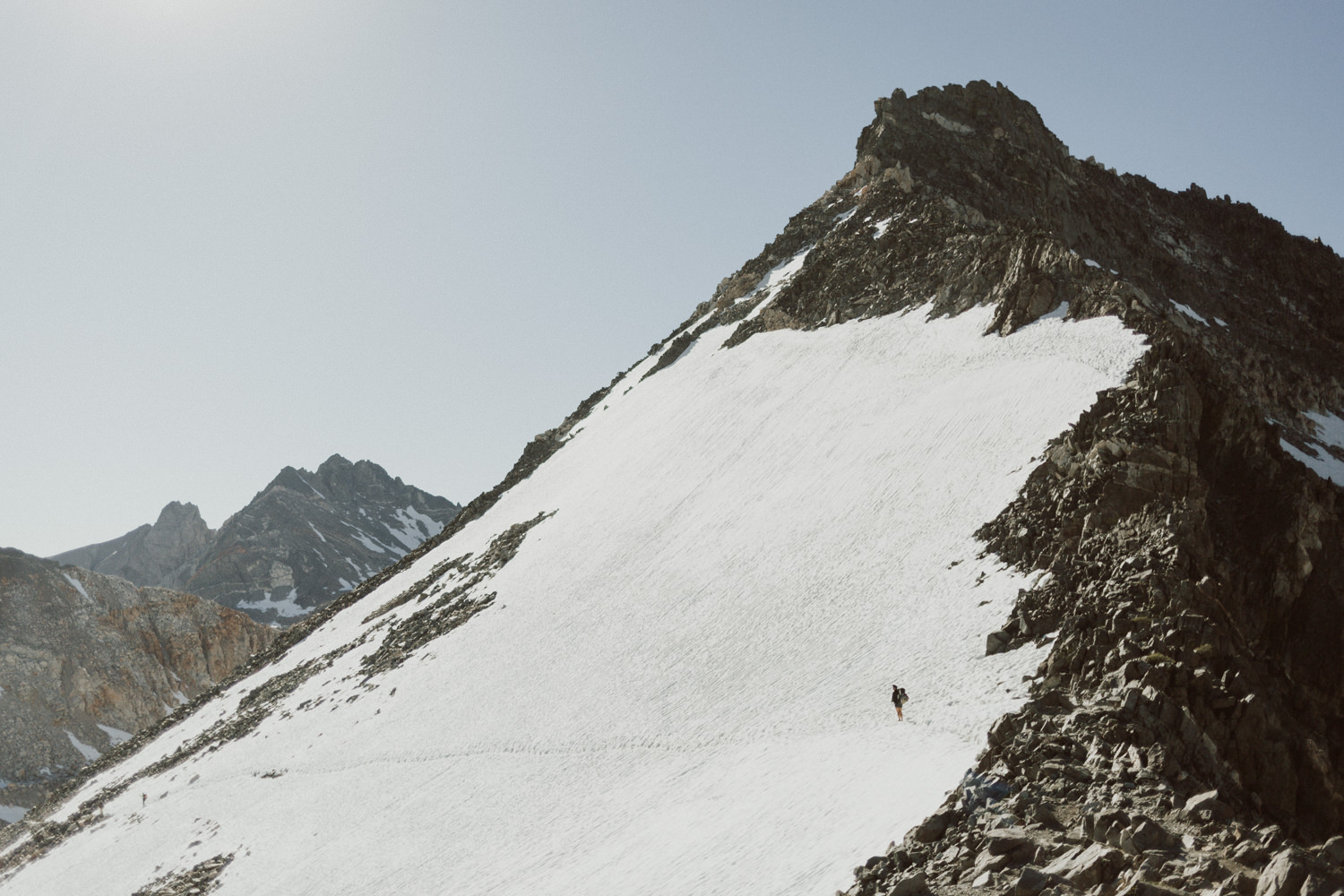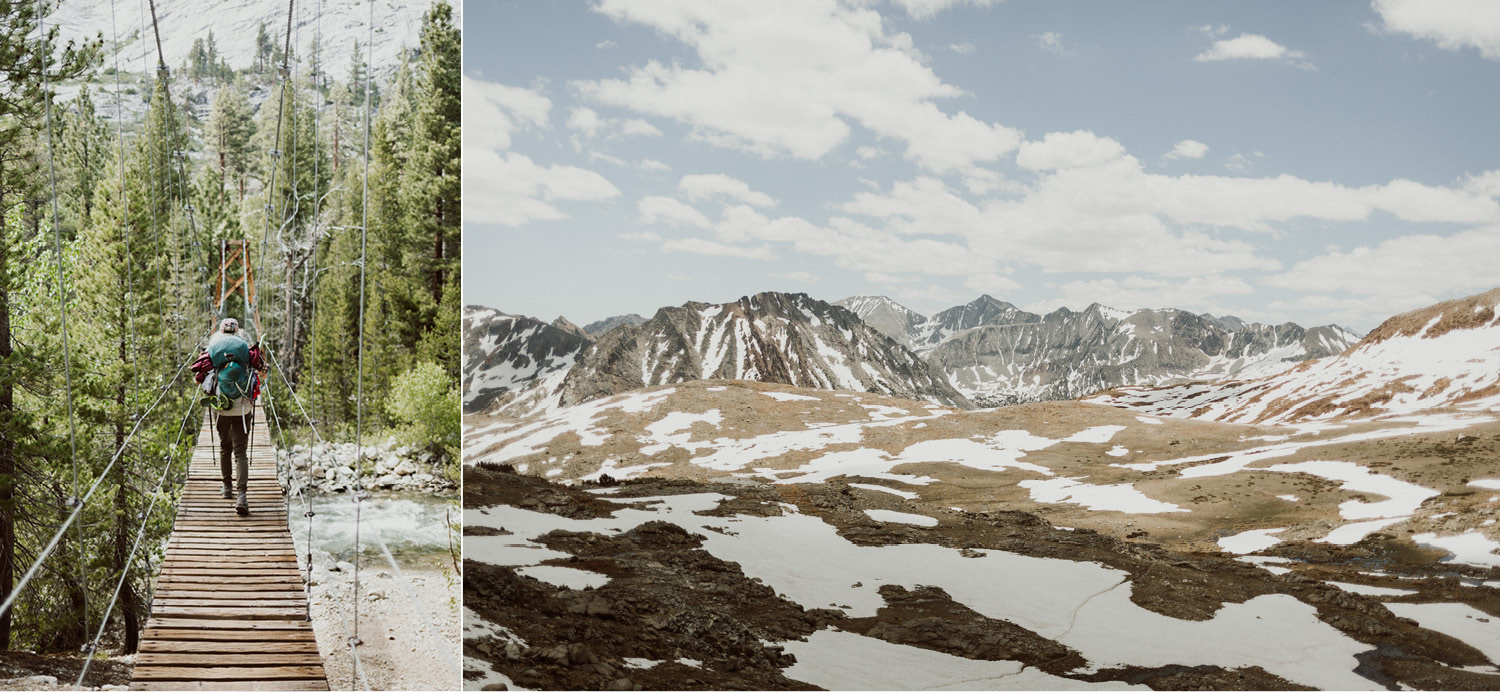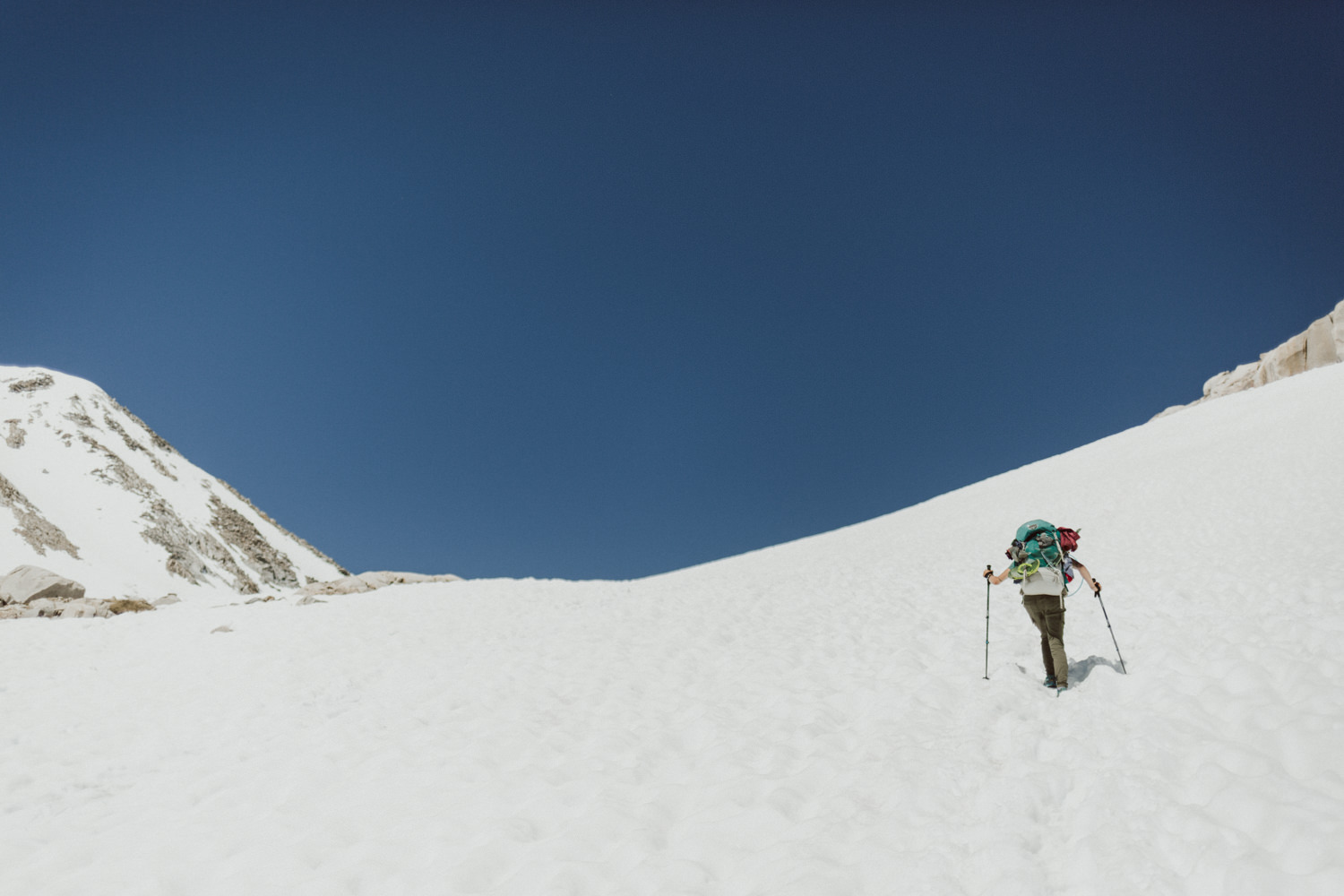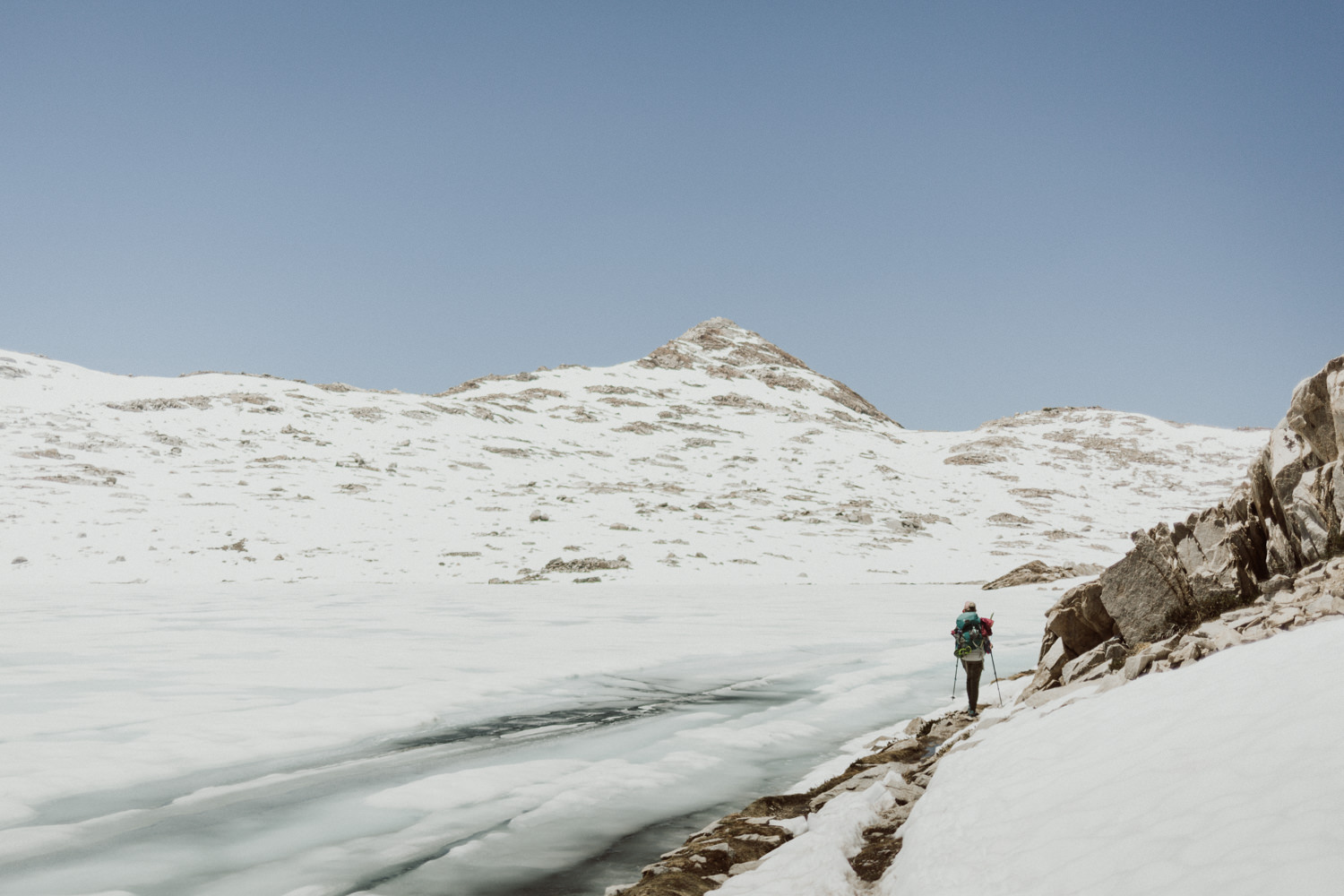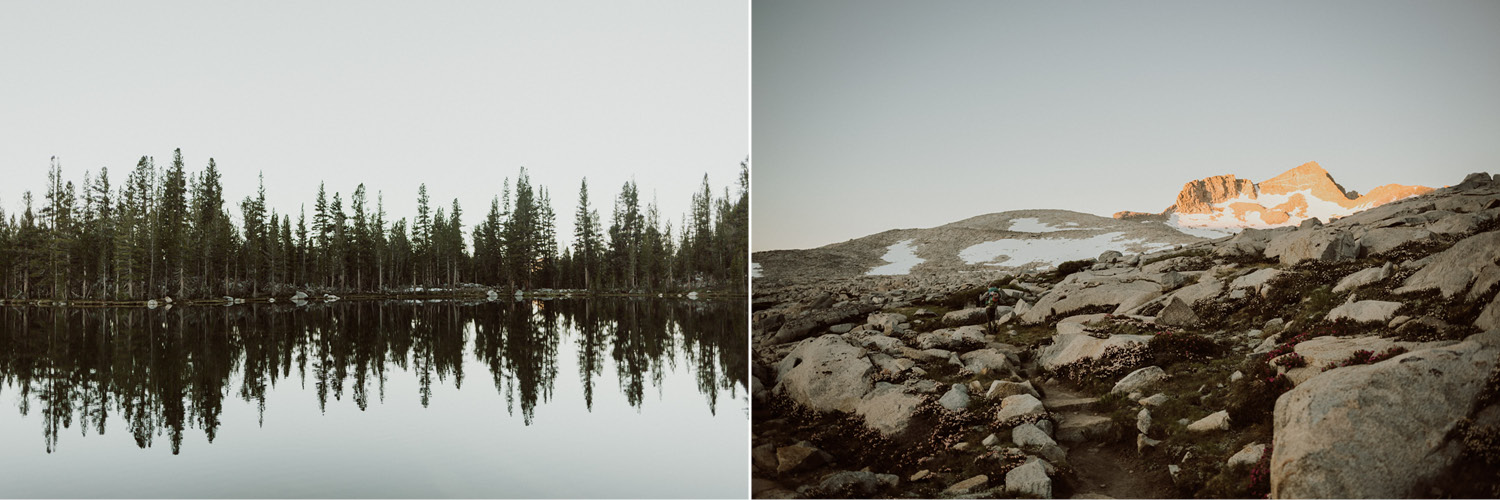How to Hike 1000 Miles with your Partner (and Other Thoughts on Marriage, Failure, and why Adventure is Important)
On April 18th of 2016, Nate and I got out of our friend's car at the end of a dirt road, facing a giant fence stretching East to West as far as we could see. We were in Campo, California at the Mexican Border, the Southern terminus to the Pacific Crest Trail.
I've been wanting to write about our experience on the PCT for so long, but as many thru-hikers can attest, explaining an experience as big and emotional and life-changing as the Pacific Crest Trail is extremely difficult to do. Its been over two years since we signed our names into the trail registry at the southern monument, and it feels like that simple act is still defining our present moment. Its funny how often I reference moments on the PCT in my mind, as though that three-month journey held a bunch of teaching lessons that are metaphors for everyday life. Because in a lot of ways, it did.
For reference, you can read about our daily journey on the PCT. You may have to scroll a good ways to find the posts.
I'll start by saying this: we started with the intention of hiking all 2,650 miles from Mexico to Canada and we didn't finish. This is part of the reason it has been so hard for me to talk about the PCT. Because it always comes with the caveat of "we didn't finish". Even though we did about 1100 miles, its been hard to view that as an accomplishment because it's always tinged with this fact that it's not even half of what we set out to do. Plus, the thru-hiking community has a tendency to pass judgment on those who quit, fail, or for some other reason don't finish. But I will say, after two years of dealing with the feeling of failure, I can say that I am so proud of us for accomplishing what we did, and for realizing that we needed to get off the trail when we did.
When we started the trail, we were 9-month newlyweds. We celebrated our first anniversary on June 20th in the Sierra Nevada Mountains, somewhere between Pinchot Pass and Mather Pass, with a bottle of bourbon and some peanut butter cups to share (and of course we saved our favorite dehydrated camp meal for that night). I would like to think I had some idea that the PCT was going to be the hardest thing I'd ever done up to that point, but the reality is that my eyes were glossed over with this idealized picture of spending every day in nature with my husband. I knew it would be hard physically, but I had no perception of how difficult it would be in the very specific and subtle ways that it was. It gave us a very real idea of what marriage looks like.
I probably should have known we were in for something huge when on the way from our friend's house in San Diego to the southern terminus, I nearly threw up in the car. I'm not sure if it was carsickness from the bumpy dirt road, or my body trying to tell me something, or some combination of both, but the nerves in that moment were very real. We'd prepared everything as much as we could up to that point--sent resupplies, tried & tested our gear, studied the map, trained as much as we could, and read countless blogs from people who hiked the trail--and yet, no amount of research or planning could prepare us for what the next three months of hiking would mean for us.
Our first day we each hiked with 8.5 liters of water. That much water weighs almost 19lbs, not to mention the weight of our packs and four days worth of food to our next resupply. It was heavy. We'd read so many accounts of dehydration on the first 20 mile stretch through the desert, we wanted to make sure we weren't one of those people who had to be rescued at Hauser Creek. There would be many more stories of things like this happening, being overprepared instead of trusting ourselves, which would be to our fault. Getting blisters from carrying too much weight, not using the food in our resupply cause we'd prepared it several months back and were tired of eating the same thing, planning out our days to an exact campsite every night when for some reason or another it wasn't feasible. This is true for most PCT hikers--you learn as you go that you don't need that emergency poncho when your rain jacket will do just fine. You learn to be flexible to what the trail gives you.
I remember the day we reached 100 miles. ONE HUNDRED MILES?? I'd really never imagined what it might feel like to walk that far, and I did it in a matter of 6 days! On my own two feet! I called my brother Nathan because I had cell signal there and told him all about it. I could tell he was impressed and it made me feel SO good. Soon after, we'd pass 200 miles, then 300, and the excitement of every hundred miles faded a bit. We had a lot more hundred mile markers to pass before making our goal. The day we reached 500 was fun though because we listened to "I'm Gonna Be (500 Miles)" by the Proclaimers on repeat. And we listened to it again at 1000 miles. It was always fun to compare the distance to something relatable back home--400 miles was about the distance from our home in Dallas to Corpus Christi, all the way on the coast. However, the distance was always this pressing thought in the back of my mind, "2000 miles to Canada. If we average 25 miles a day, will we make it before October?"
The PCT was filled with these highlight moments that made you feel incredibly badass. The day we hiked mount San Jacinto I was stoked. That was the highest altitude I'd ever been at and it wasn't even that difficult. I could tell I was getting stronger. The first day we hiked 20 miles I felt like I was finally a real "thru hiker". When we made it to Kennedy Meadows (700 miles) it meant the end of the desert and the beginning of the amazing, cool, water-filled Sierra Nevada mountains. I couldn't believe we'd hiked the entire length of the Southern California desert. On the day we summited Mount Whitney, I called my mom at the top after not having contact for two weeks, and though I could barely make out her words over the fuzzy cell signal, that familiar voice was so exciting to hear I cried. The PCT's high points were some of the highest highs I've ever experienced.
I think the thing I remember most fondly about the PCT was that every emotion was so real and unpolluted. I was never distracted. I felt what I felt so deeply, which often meant crying at the way the sun rises so gently over the chaparral hills in the distance. I would just let the tears flow because there wasn't anyone around to judge. One morning I screamed loudly and dramatically because I was disassembling the tent when one of the poles popped out and hit me right in the nose just after I'd cut my foot on a stick poking out of the ground. Frustrations were big, sadness was heavy, and joy was felt by singing loud and crying and skipping along the trail. There was nothing to distract you from your feelings--no facebook feed to sink into, no online shopping to make you feel better, no one else to vent to except your partner. And for us, it honestly meant seeing each other at our most vulnerable. Learning each other strengths, absolutely. But also seeing each other's real and undiluted weaknesses. The way Nate got annoyed at my incessant need to talk and ask the same simple questions over and over just to have some social interaction, and the way I would get lazy when setting up camp and crawl into my sleeping bag and fall asleep before the camp chores were done. We were beginning to see the reality that we weren't the perfect people for each other--both of us had major weaknesses that were hard to deal with.
Aside from the small annoyances, we were also dealing with the reality of survival. The logistical problem of how to hike 42 miles without water. Encouraging each other through heat exhaustion, altitude sickness, figuring out how to cross raging rivers and icy passes, learning how to ration food when you get caught in a snowstorm and have to spend an extra day getting to your next resupply. In a lot ways, it was extremely stressful. On top of that, there was weight loss, injuries, tendinitis, blisters, sunburns, and always a new aching pain from some part of your body. Plus this nagging thought in your mind that if you don't hike enough miles, you won't make it to Canada before winter hits.
We hiked for almost three months. We'd covered the desert and most of the Sierra Nevada mountains and were approaching what we thought would be an easier section of trail after all we'd made our way through. One night I looked at the elevation profile of the next section on our Guthooks app and it didn't look much different than the Sierra. I was frustrated. We'd covered so much ground and wouldn't be catching a break anytime soon. We felt like we were way behind, too. In the desert we hiked around 23-25 miles a day, but in the Sierras that was slowed to about 17 miles a day. It was hard to imagine making up the miles to be on pace to finish by the end of September. We were starting to feel discouraged by the time we reached Sonora Pass and realized the guy we paid to deliver our resupply had already left for the day, which meant we'd have to stay there a night and wait for him to be back the next day (and lose a day of hiking). We were frustrated, discouraged, and felt like there was no way we could finish. I called my friend Wang who was a few days ahead of us and told her we were thinking about getting off the trail.
For a while, I told people the reason we got off the trail was that I injured my foot and that I had lost too much weight. Neither of which were untrue, the top of my foot swelled up with this weird purple bruise right in the middle and I went to a podiatrist to find that I had a minor overuse injury, and I lost about 12 lbs. I could have kept hiking--the doctor said my foot would heal itself, and I probably could have eaten more to make up for the weight I'd lost--but there was this overwhelming feeling after having hiked for nearly three months that we honestly just couldn't bear another three months of this. We were tired. Bored. And we didn't like this weird feeling we had towards each other. Romantic love had faded 500 miles back or so, and we couldn't face another three months of constantly dealing with the stress of survival. Why were we doing this? Why did we CHOOSE to put ourselves through this?
We arrived in South Lake Tahoe and I cried almost the whole way there that morning. I felt so defeated. We'd set our sights on this huge goal, and it ended up being more than we could handle. Even though we were the ones choosing to get off trail, it felt like we'd absolutely failed. We got a motel room and ate cold Chinese food that night, and spent the evening researching the cheapest ways to get home. Because we were trying to save money, we chose to take a bus instead of flying, which meant 46 hours in a greyhound from Reno to Fort Worth. That was probably the worst choice we could have made. Sitting in a hot, greasy bus with a bunch of somewhat scary people and not sleeping for two days made us feel like we had absolutely made the wrong choice. We arrived in Texas in mid-July to the unbelievable humidity, and felt like completely different people in the reality we had stepped back into.
The trail was a crash course in what it takes to make a partnership work. If I could go back, I would tell myself to be more patient, to give a little more, to not stress out so much about what was ahead. Nate and I saw the ugly reality of all of our own weaknesses. It was the first time I realized how much of a goal-oriented perfectionist I am, and how much it brings me unnecessary anxiety. It was the first time I'd seen Nate withdraw into himself, and I saw that sometimes I was the one who caused that. And it was the first time we had to truly trust each other in a very real way. I had to trust that if I lost my balance while crossing a river, Nate would be there to catch me. We had to trust that we were both strong enough to get ourselves and our gear over a pass. We had to share our food, our tent, our camera, and each of us had to do the work necessary to make our goal every day. It taught us that if one of us wasn't feeling well, the other could take some pack weight for the day. We learned that its the simple, everyday choices to put each other first that make a marriage work.
We got back to Texas and it didn't feel like home anymore. We'd just done one of the most fulfilling things we'd ever done, and the lifestyle we had before just didn't match up. We lived in Nate's parent's spare bedroom for a few weeks, and even though they didn't voice it, we could feel their fear that we might never leave since we didn't have jobs or much of a savings account to live on. We considered getting an apartment in Austin, but apartments were expensive and neither of us wanted to go back to jobs we didn't feel passionate about just to pay rent. In a matter of a few weeks, we spent about $60 building a camper in the back of our Honda CRV and drove north to Colorado.
There's no way to accurately describe how empowering hiking that kind of distance is. If I could hike 1000 miles on my own two feet, with everything I needed on my back, I felt like I could literally do anything. At that point, we launched our photography business full time and began pursuing adventure weddings for couples who loved the mountains as much as we did. And to our surprise, it worked. As soon as we had saved enough money, we got a small apartment in the mountains and based ourselves out of Colorado.
I honestly don't think we'd be where we are right now if it wasn't for the PCT. I imagine we'd still be in Dallas or Austin, I'd be pursuing management at my old retail job and Nate would still be working 9 to 5 as an editor. The PCT gave us the guts to take the risk of pursuing a life we loved. We knew if we could maintain the simple-yet-intentional life we lived on the trail, we could make it work no matter what challenges came. We'd dealt with literal mountains in front of us, overcome dehydration and hiked through the desert, the problems of the social world seemed so silly.
A lot of people tell us they could never work with their spouse, or they ask if its hard to work side-by-side every day. I think the trail taught us how to do that, and we genuinely enjoy it. We know how to handle the menial, everyday, non-glamorous work required to make our goals. We operate our business on the basis of each other's strengths and we each take on different responsibilities according to what we enjoy doing. We love working side by side, and its such a huge privilege to get to be together as much as we do. At this point its hard to imagine working apart. Everything is always compared to the distance we hiked--if we can handle walking 1000 miles together, we can handle this week of really busy shoots.
The other day a friend asked me for advice on hiking long distances with a partner. My advice was to have an extra dose of patience, to do more than your share of camp chores and don't expect the same in return, to carry all your own weight, and to stay positive and make jokes often. A hike like the PCT is long enduring, with beautifully high moments and moments of unbelievable self-doubt, and it requires you to understand the weight of the commitment you're taking on. It may seem romantic to walk across a country, but what makes it work isn't thinking about the huge goal, its the everyday, small decisions you make to keep moving forward. And after several months of this, you'll see some huge milestone like a 1000 miles added up before your eyes.
P.S. Thru hiking is not over for us. This year we are planning to hike the 486 miles from Denver to Durango on the Colorado Trail. And we are hoping to finish up the Pacific Crest Trail in the coming years, either in sections or all at once. Someday soon, we can finally say we hiked the PCT without any caveats. :)
Cedar & Pines is an adventure wedding photographer duo made up of Nate and Megan Kantor, a married couple based in the mountains of Colorado. They believe in honest wedding photography, capturing the small candid moments to the epic landscape views. They travel to photograph intimate weddings and adventure elopements from the mountains of Colorado to destination weddings in California, Utah, New Mexico, Arizona, Wyoming, Washington, Patagonia and the ends of the earth.



